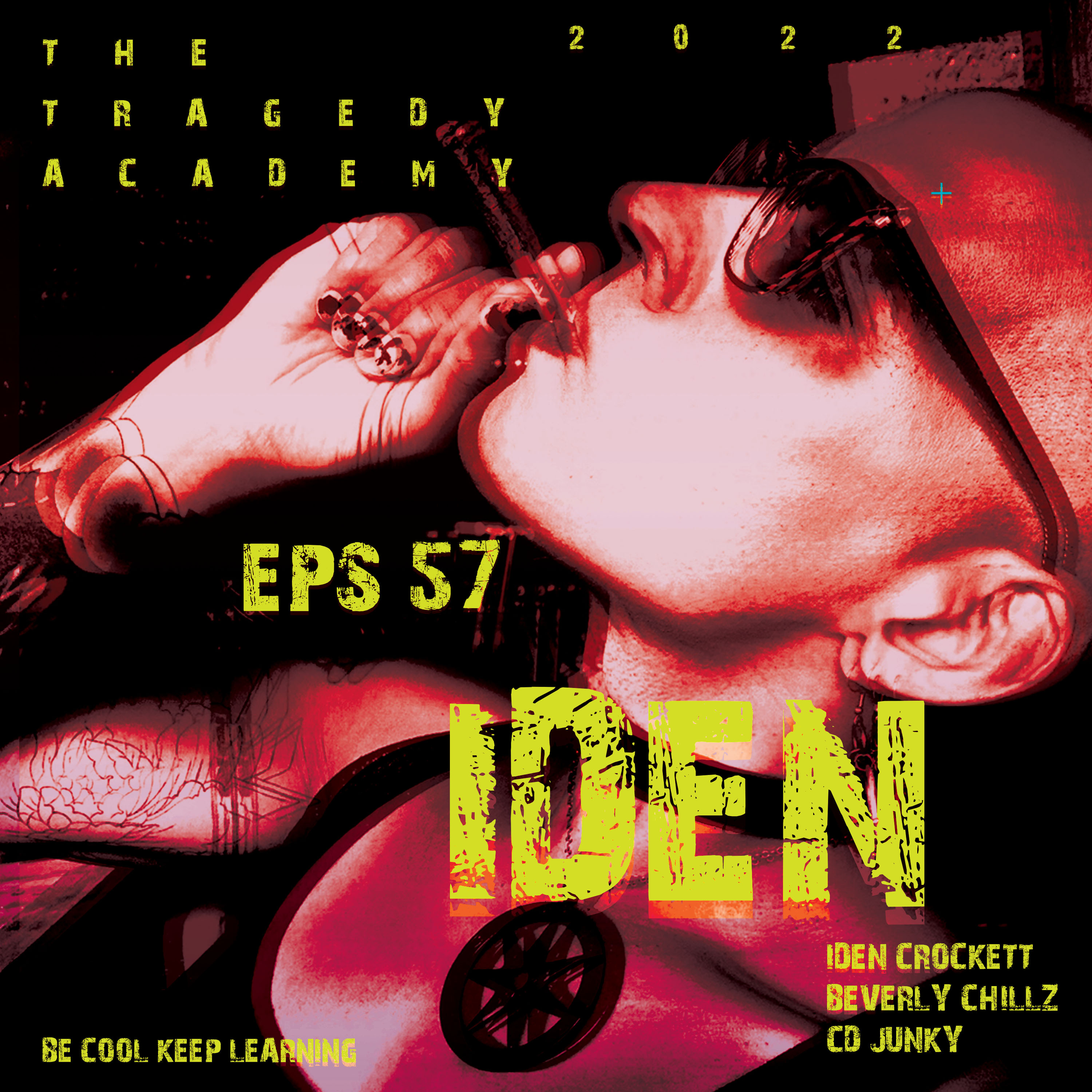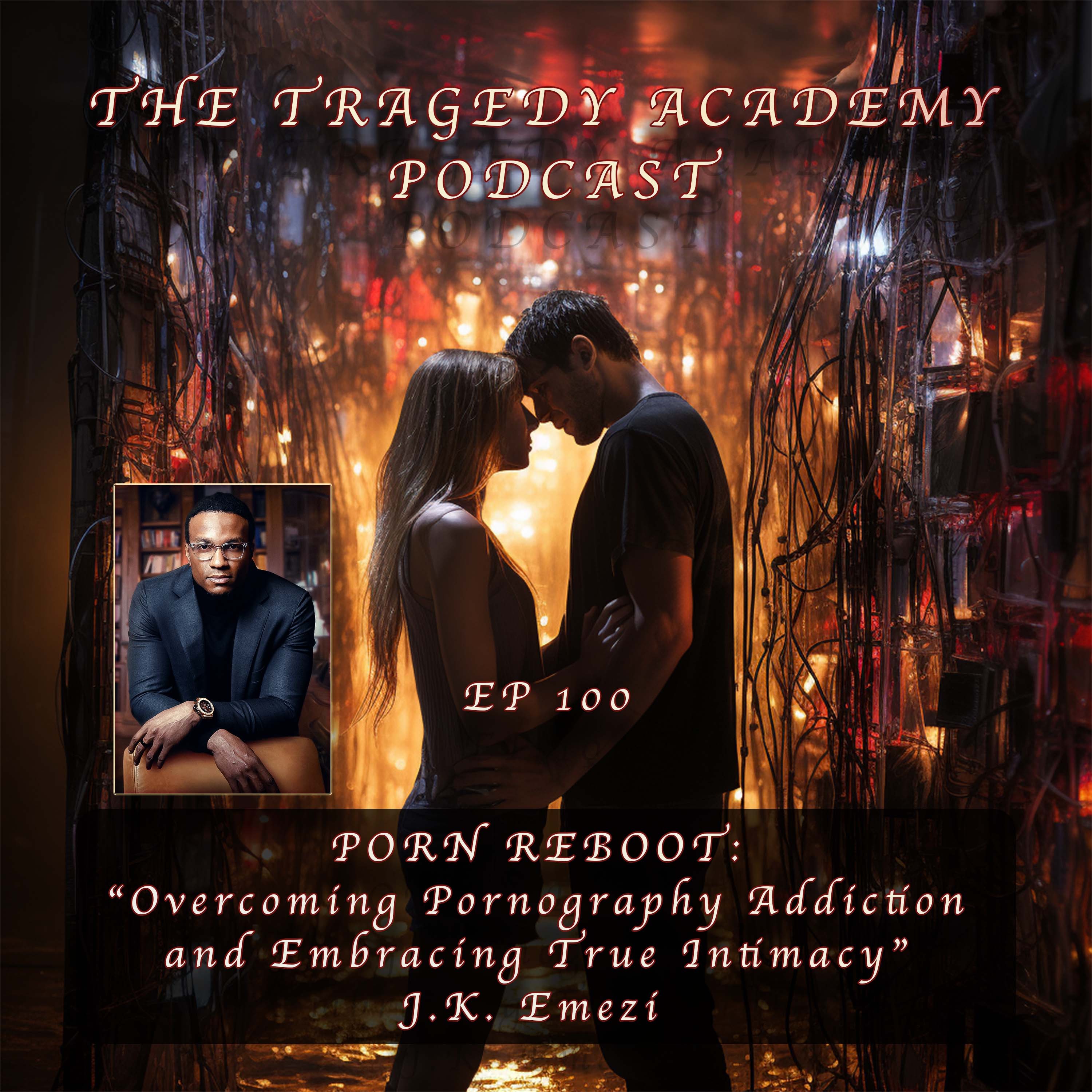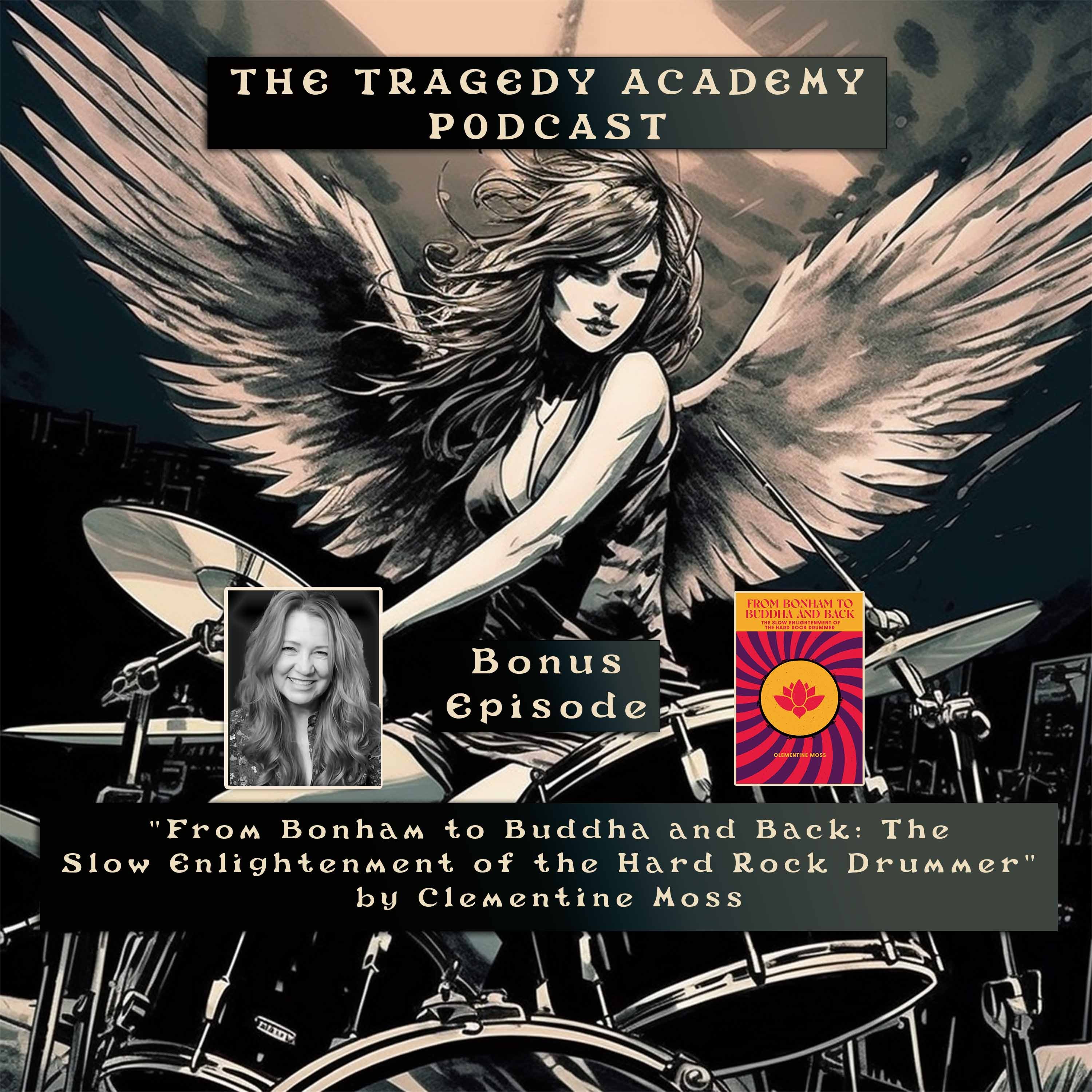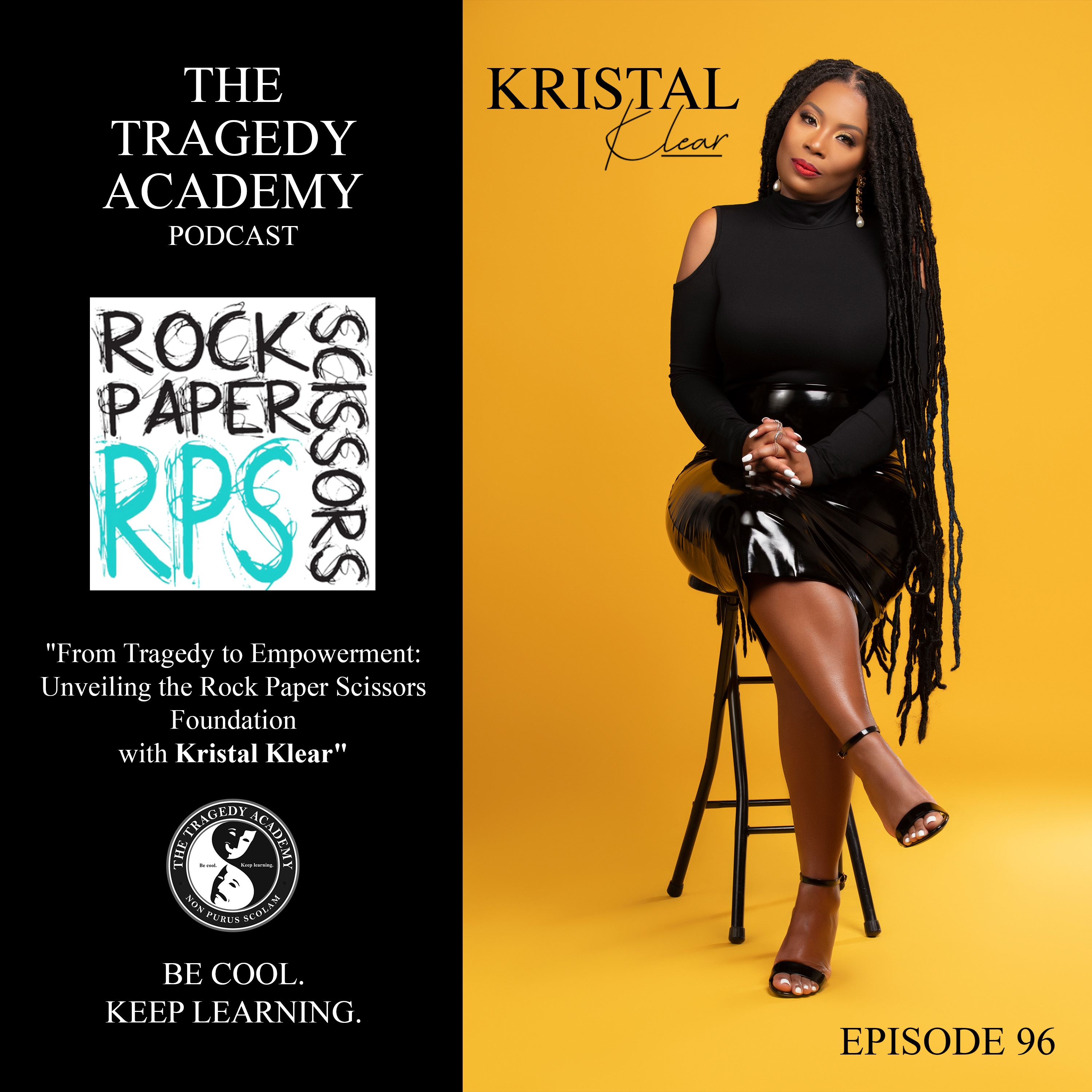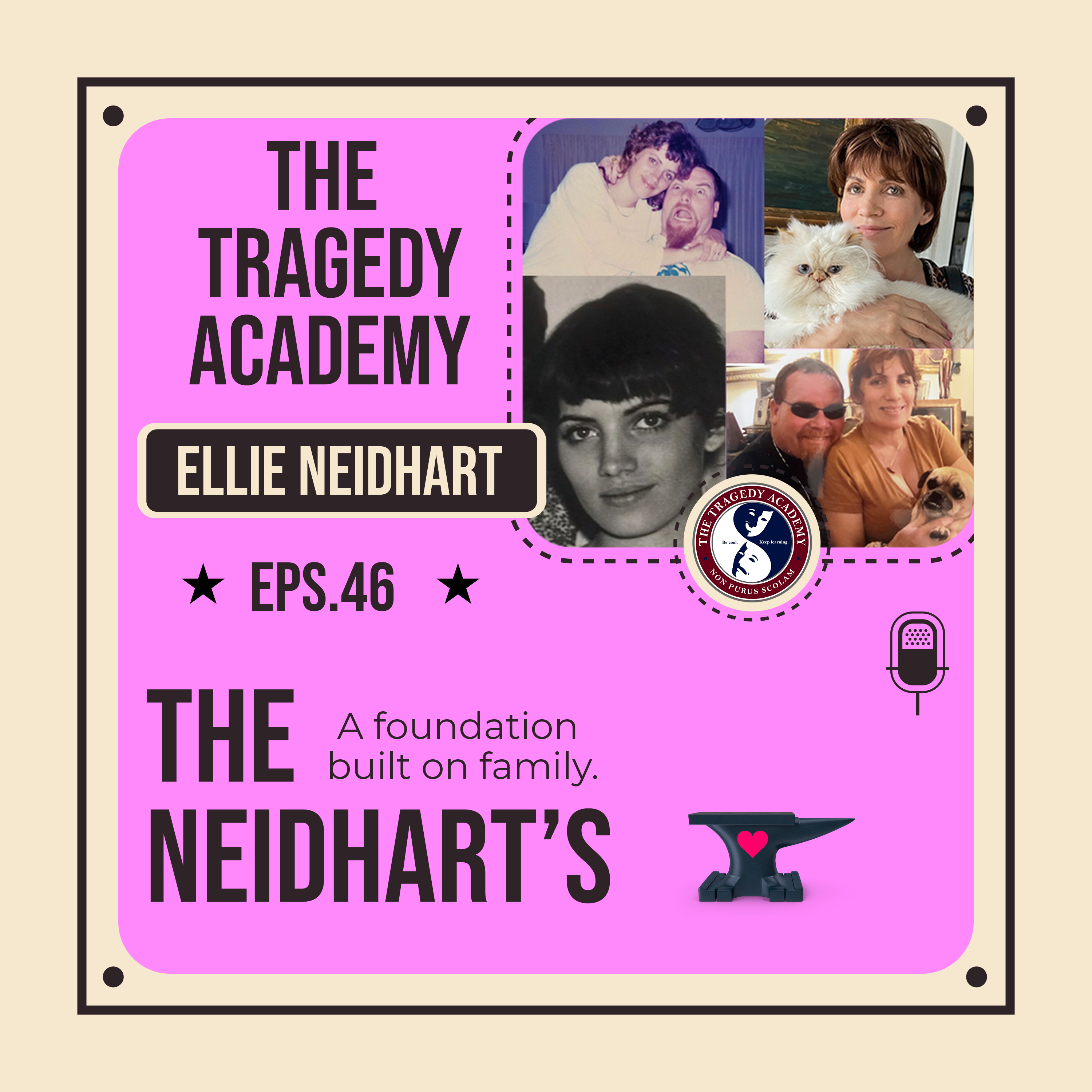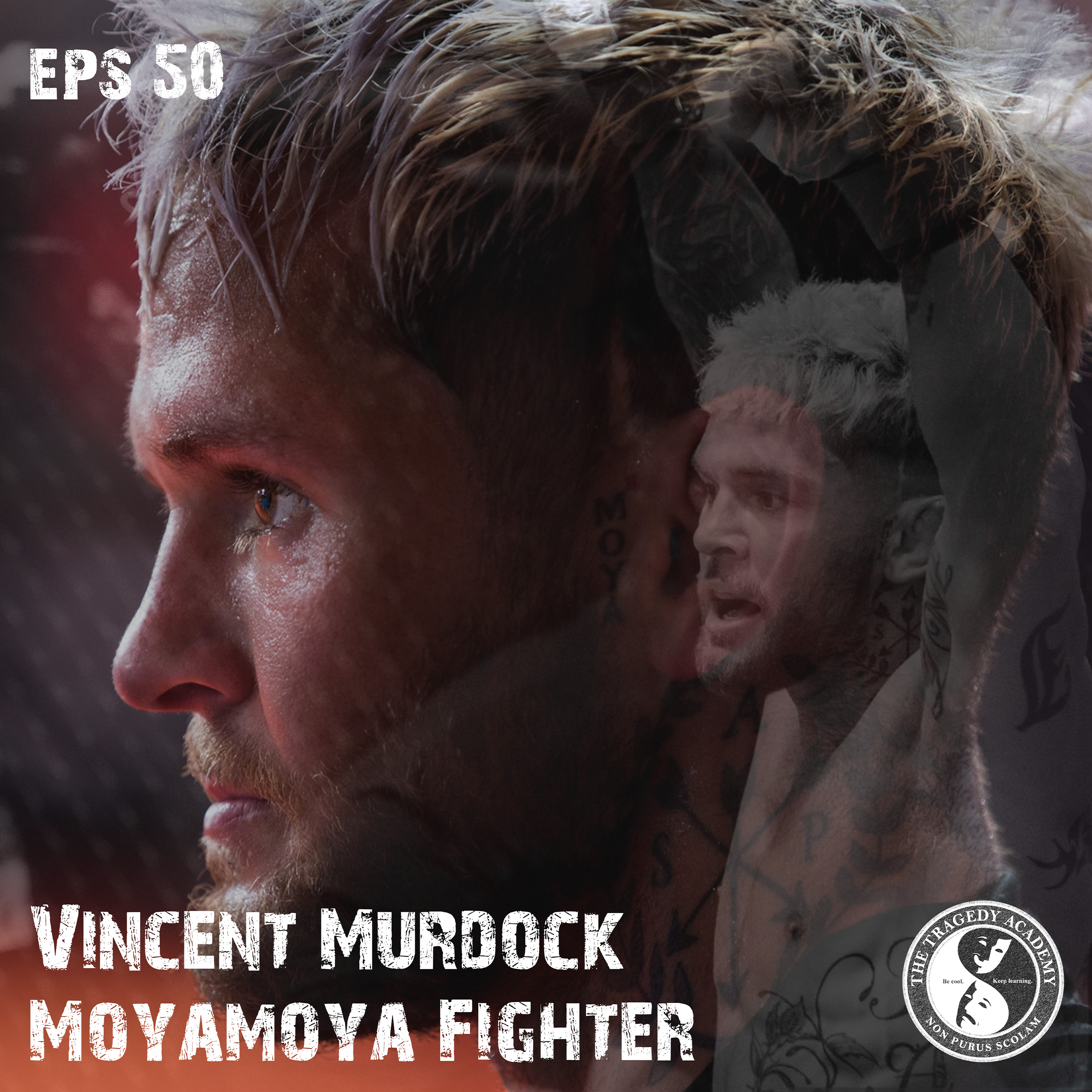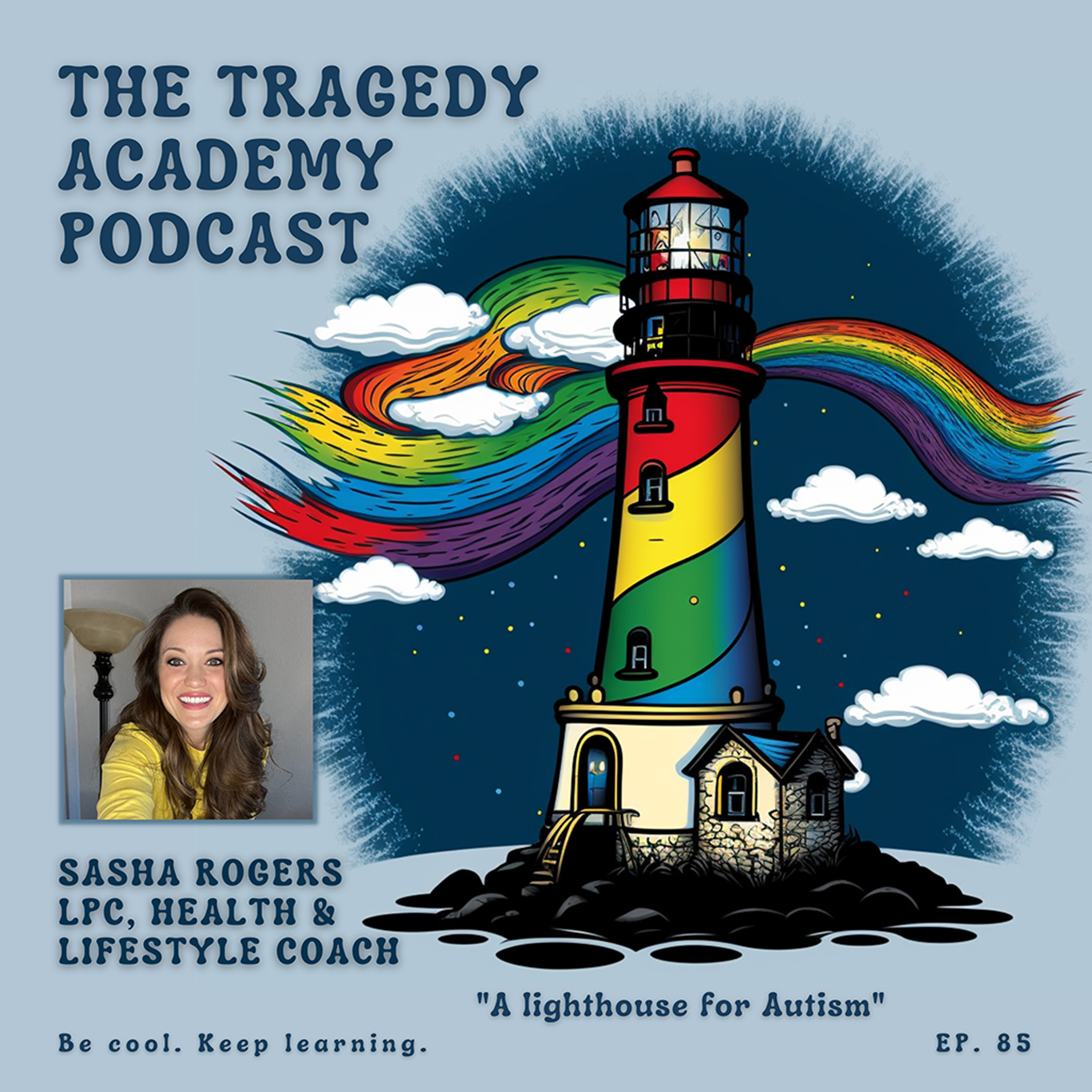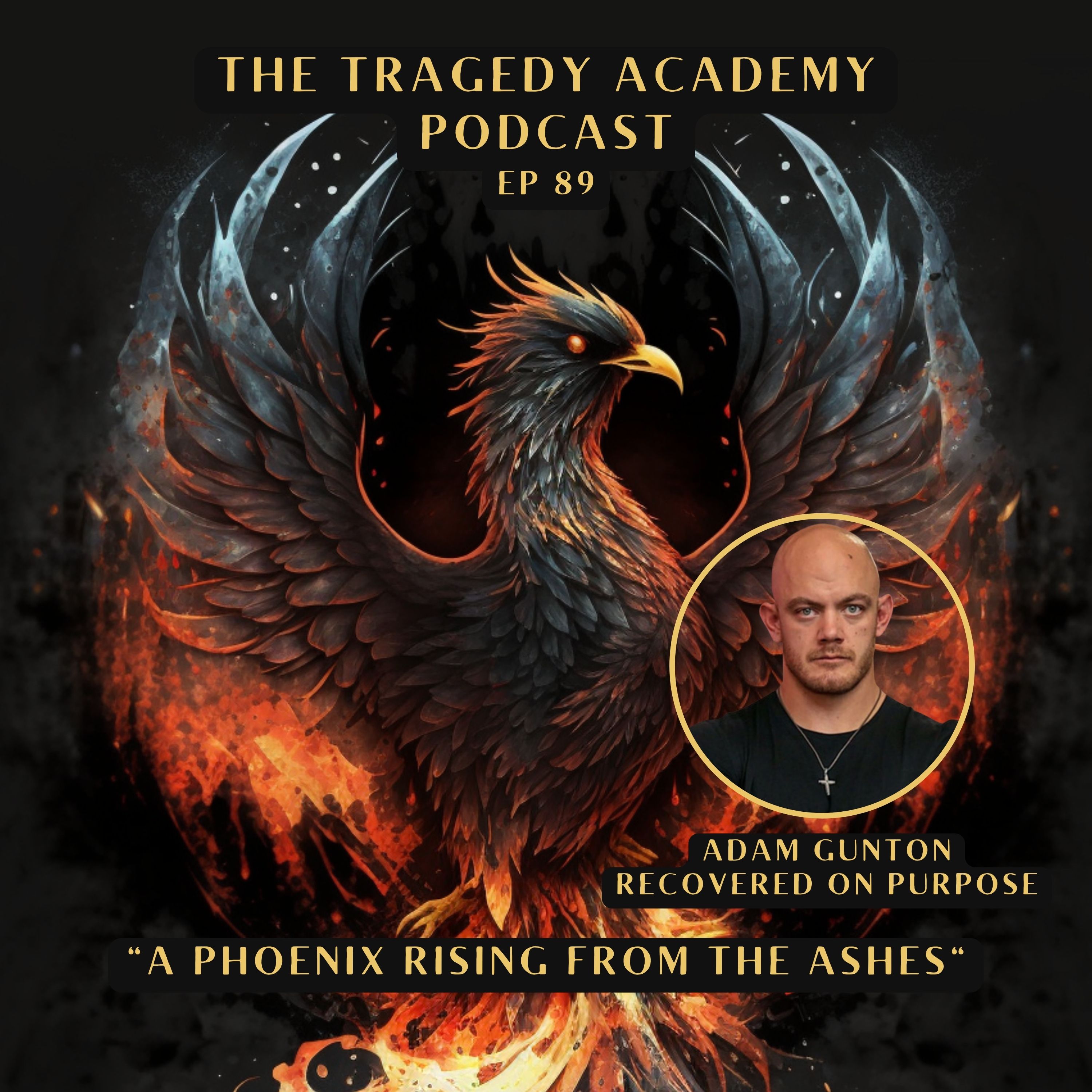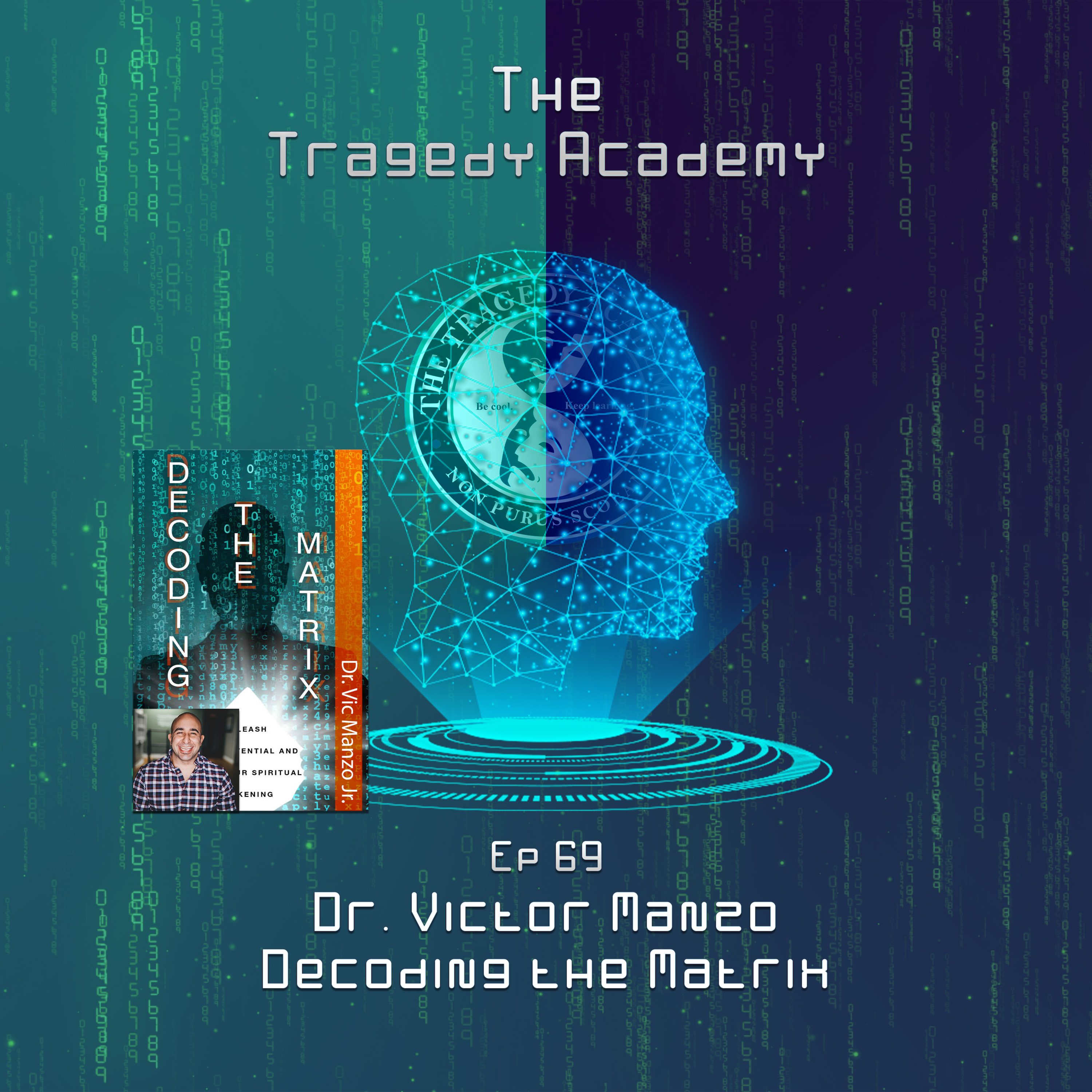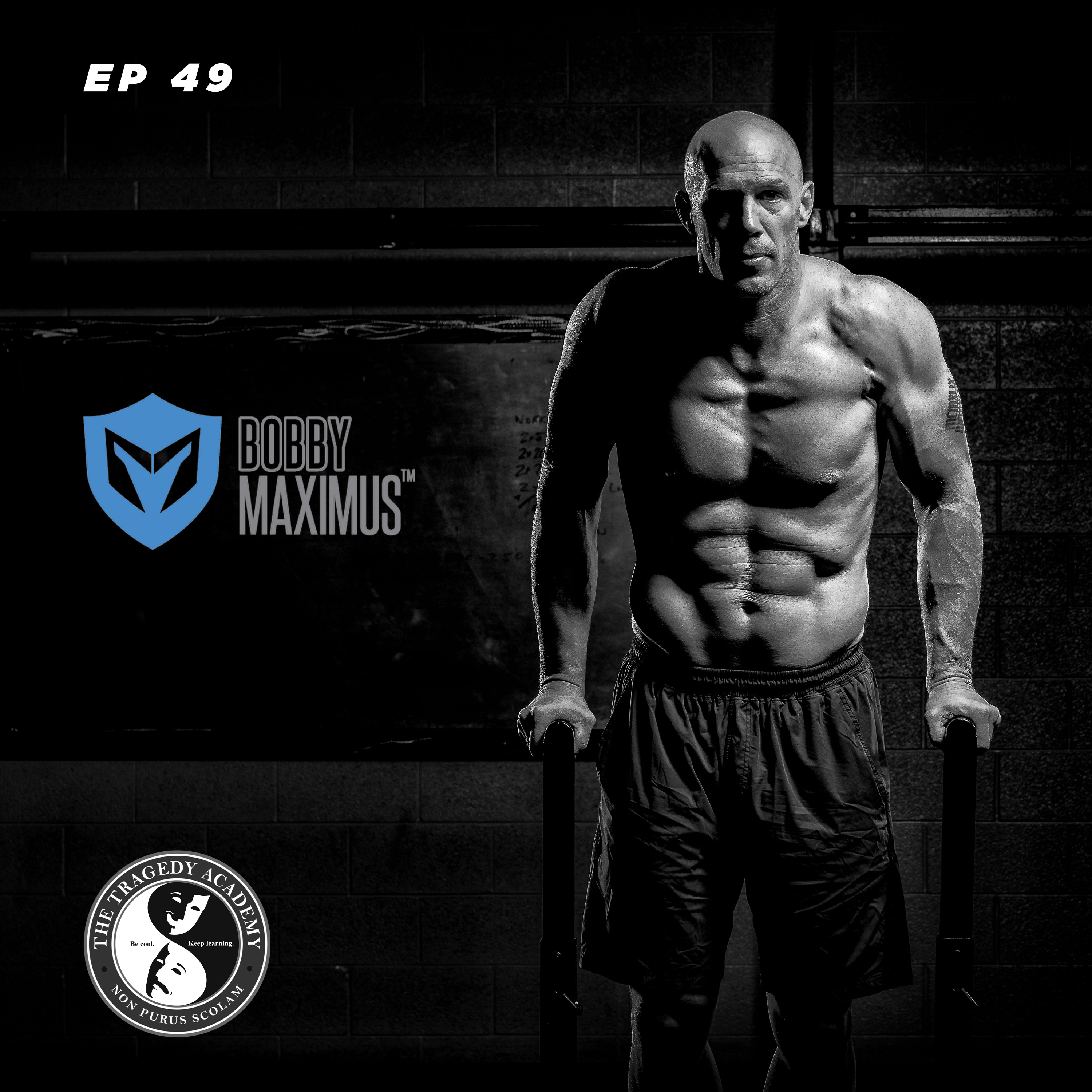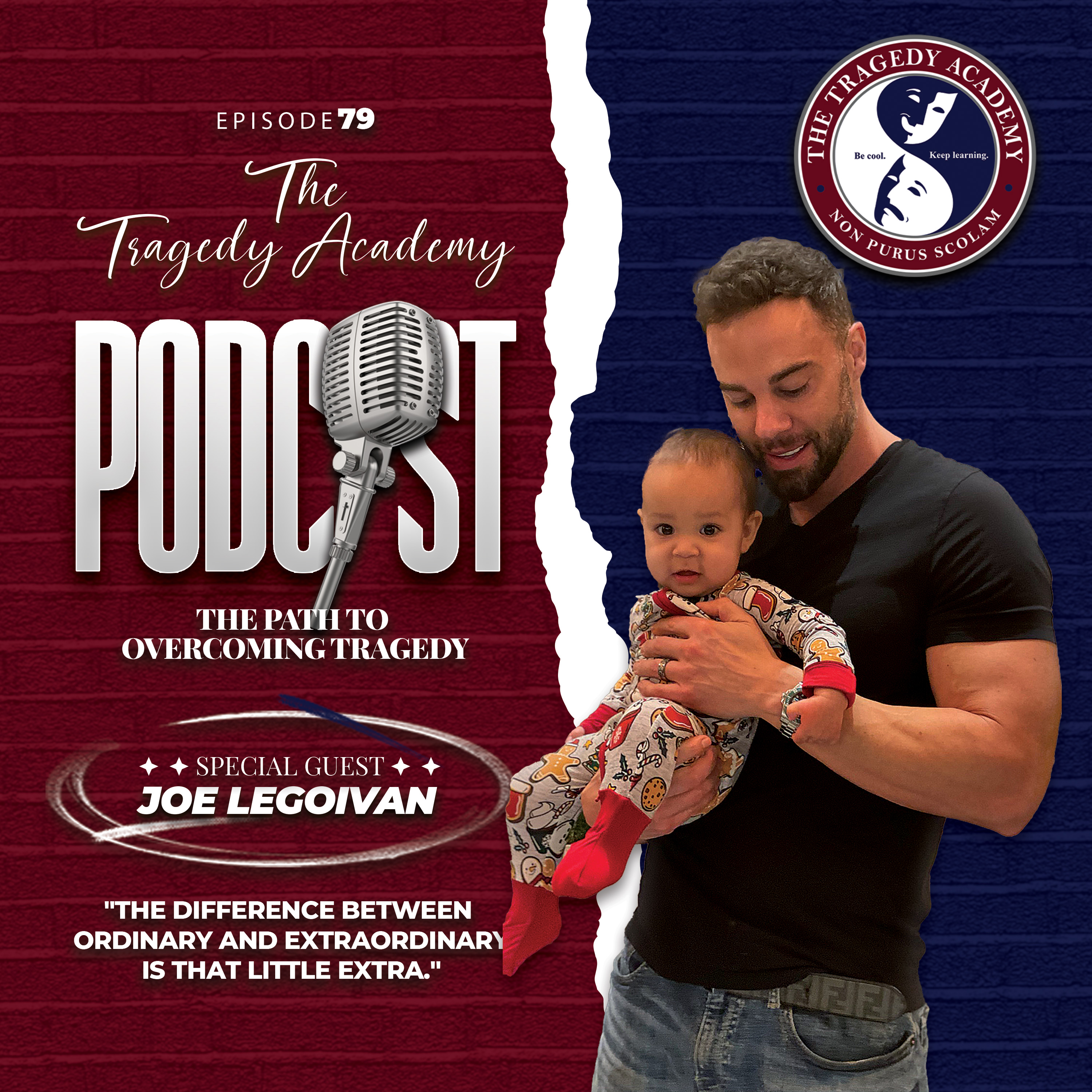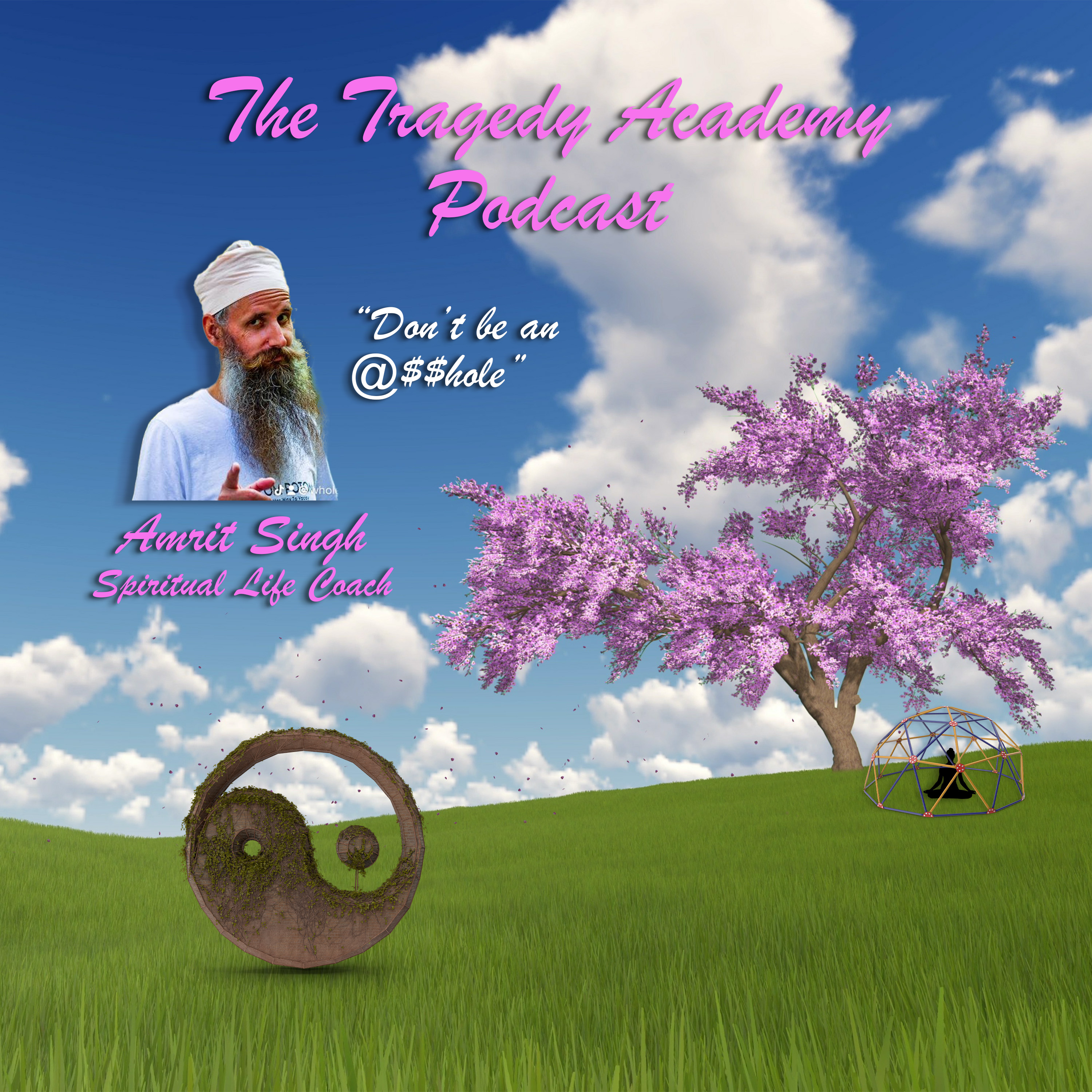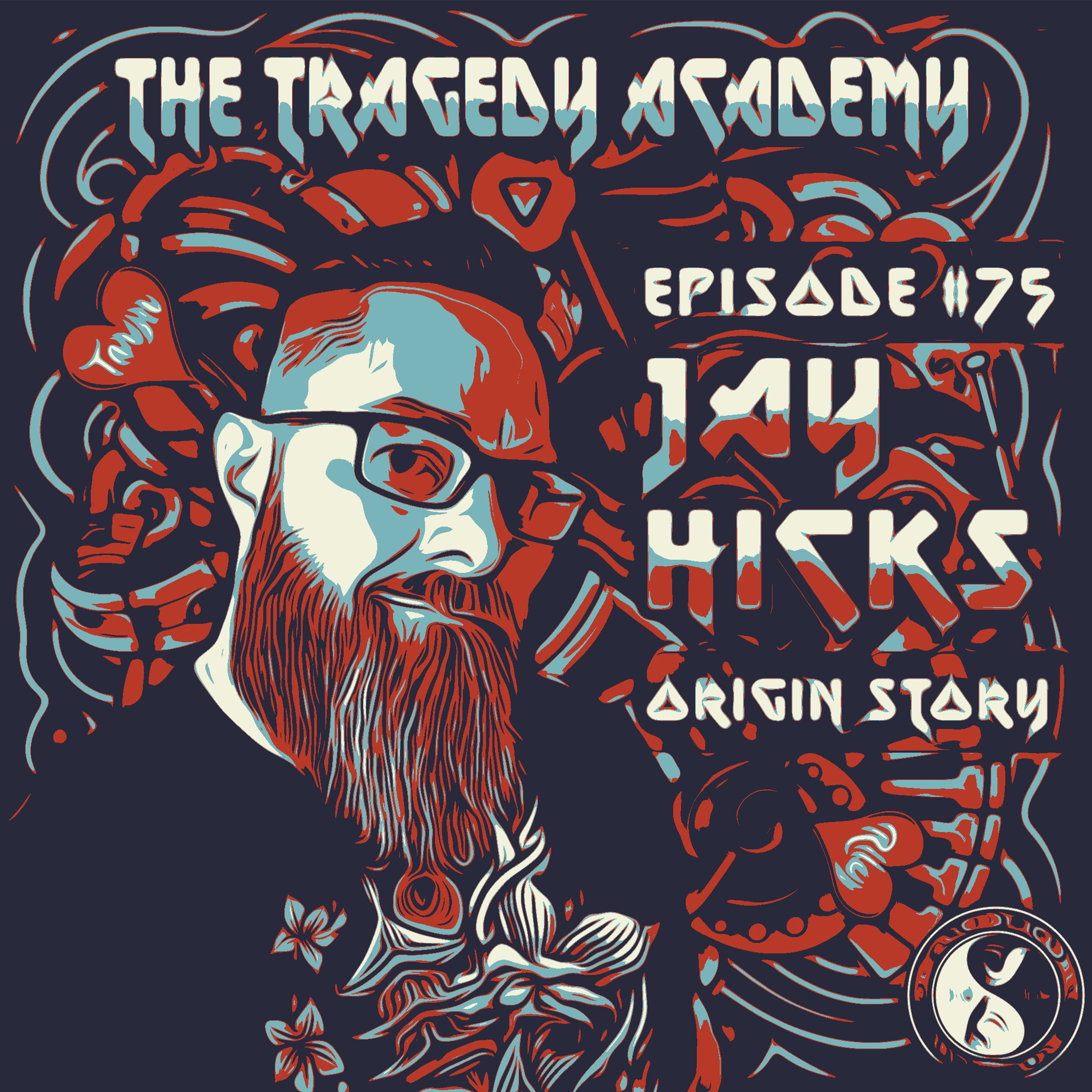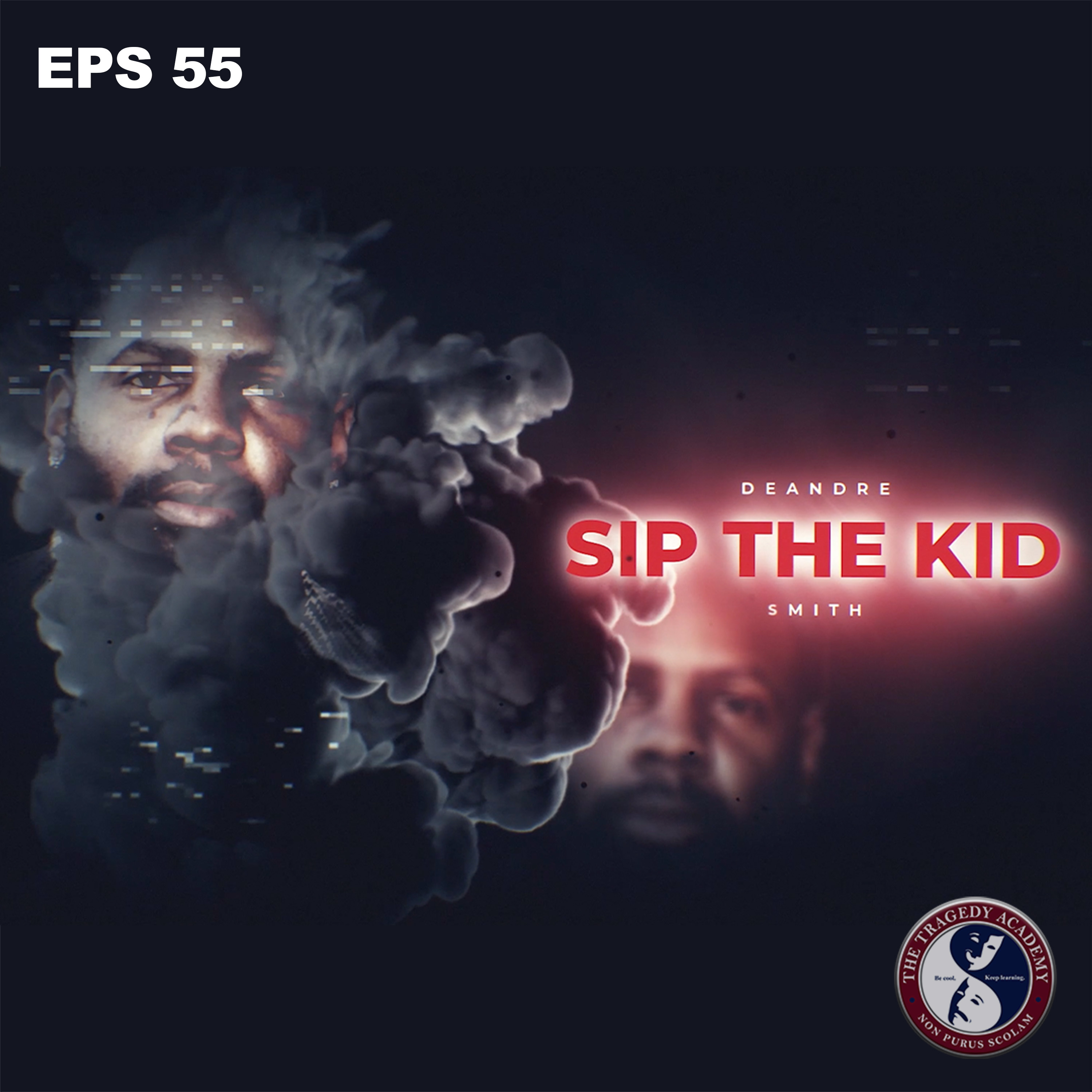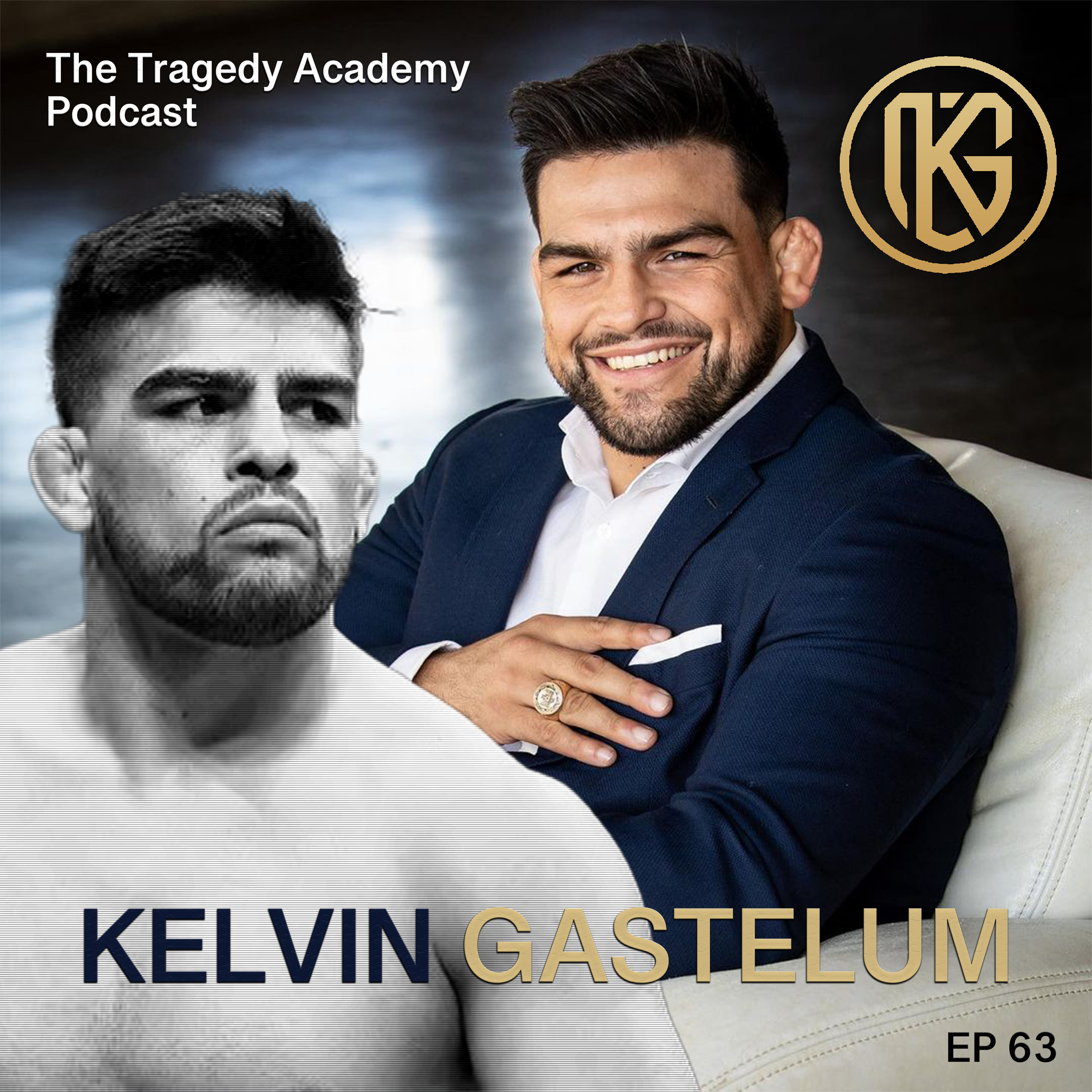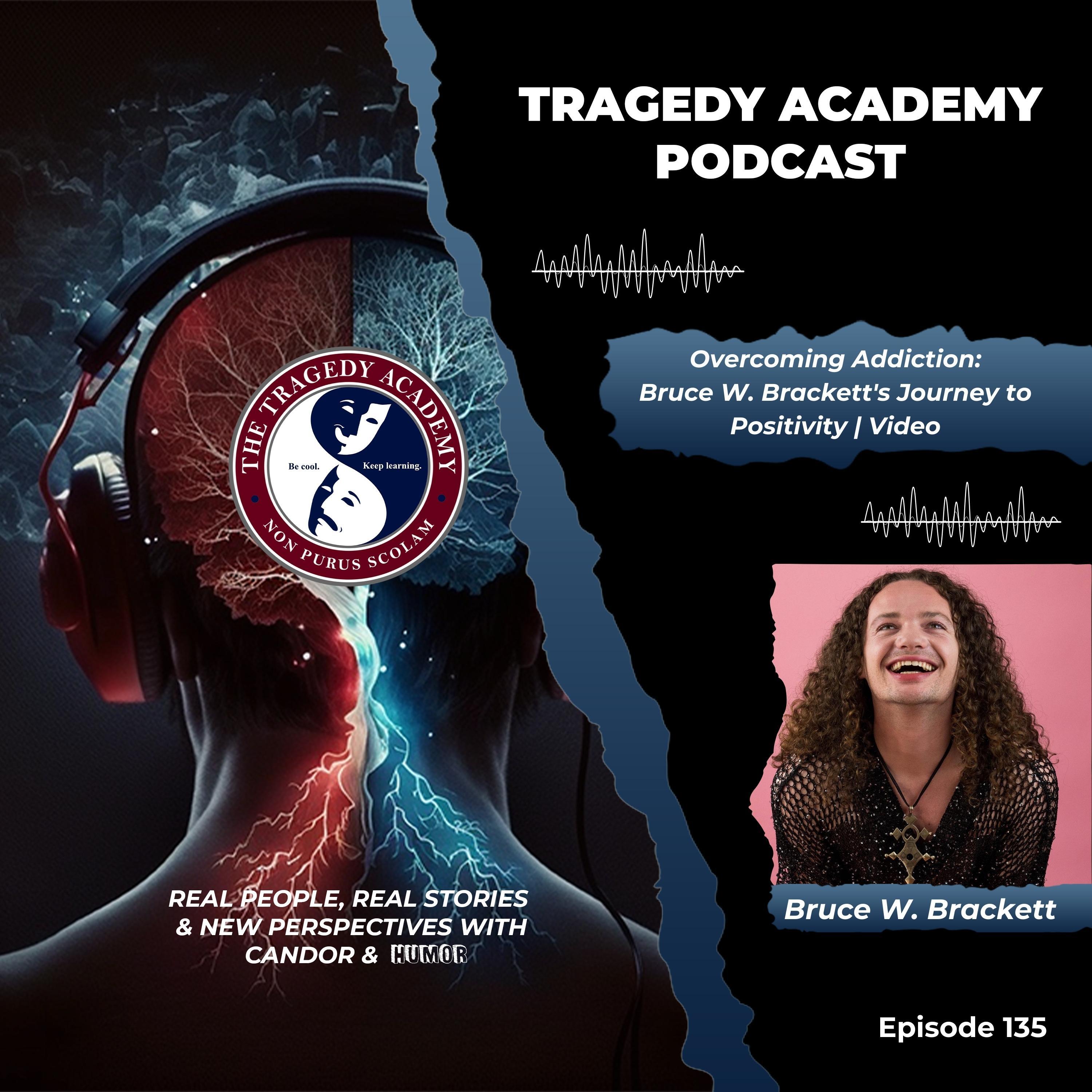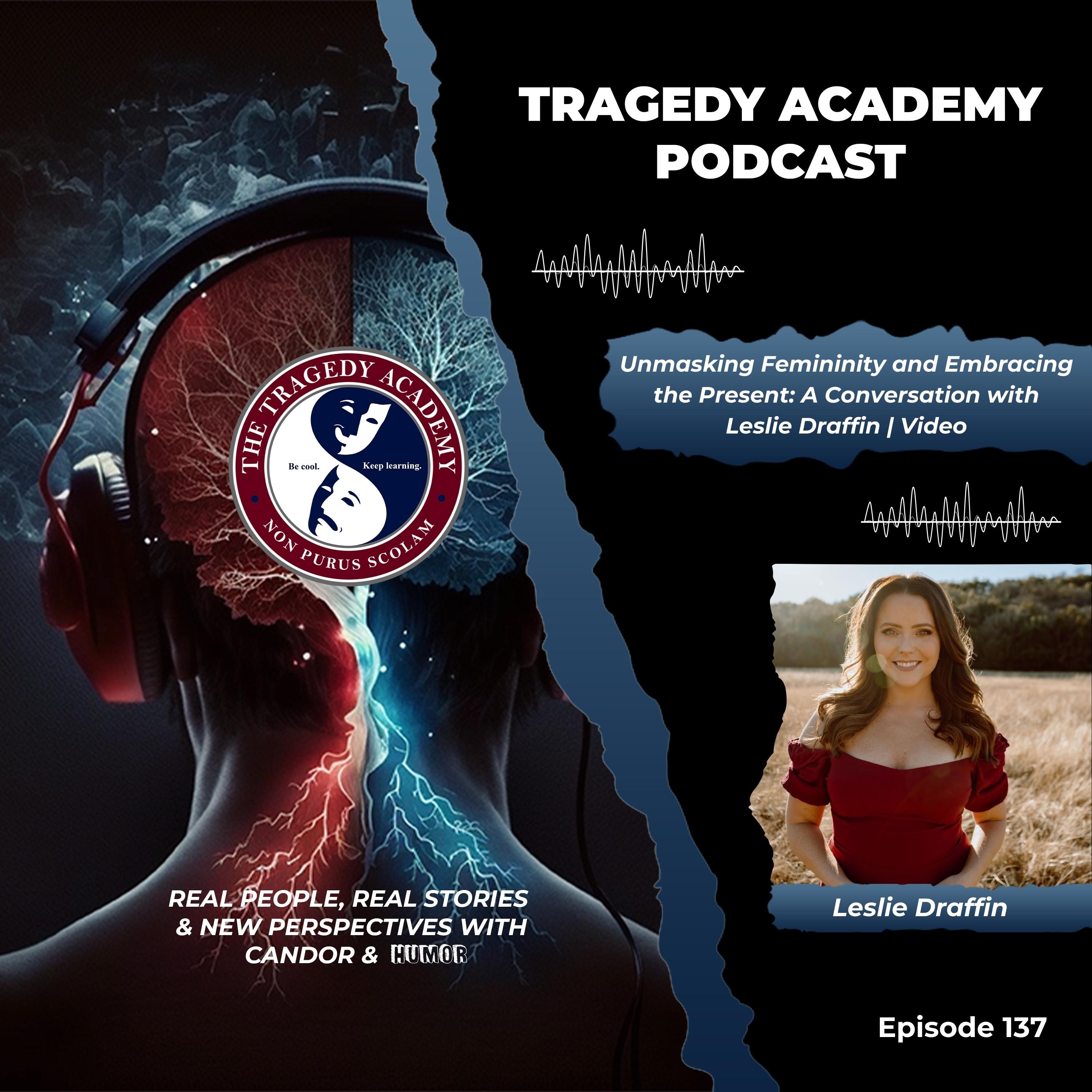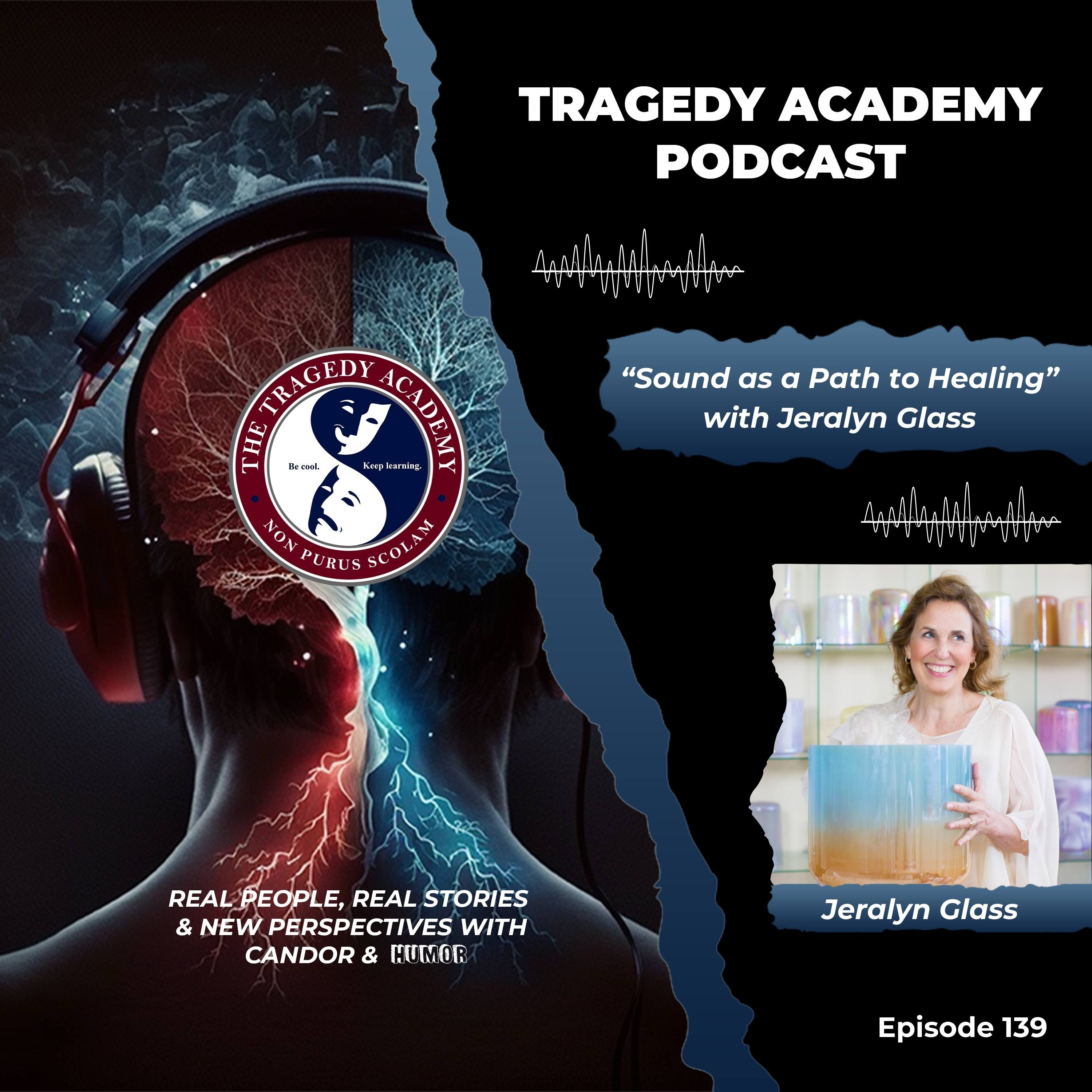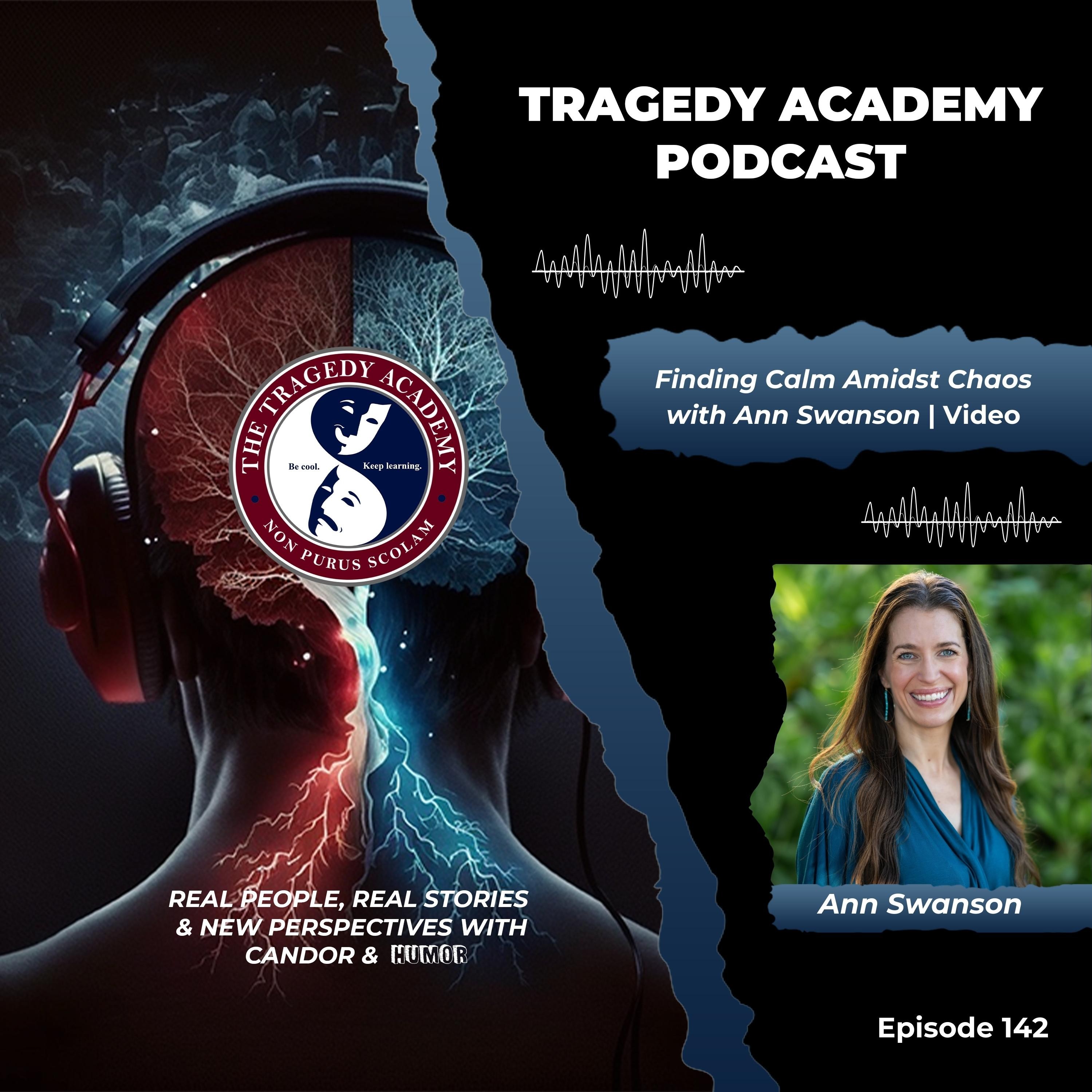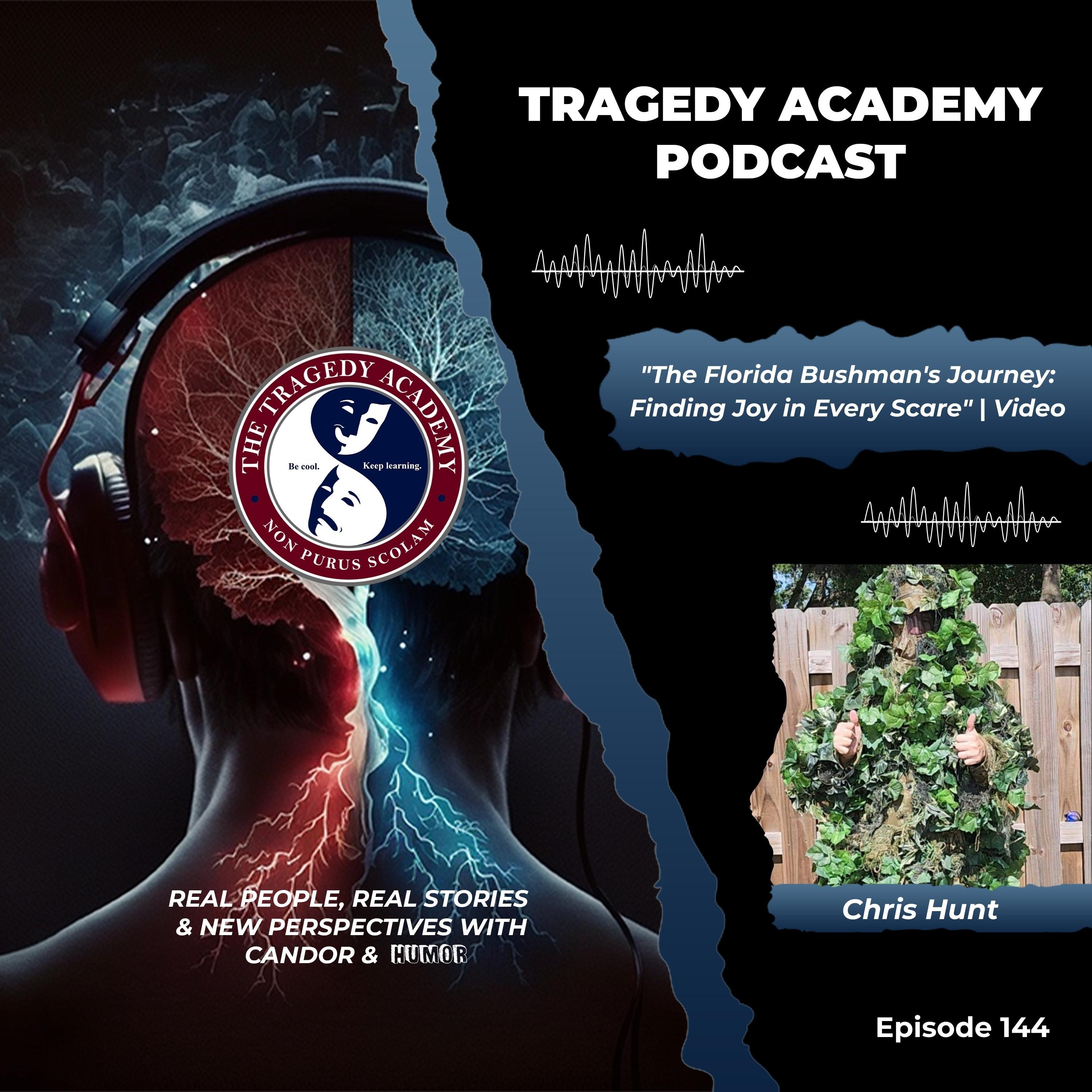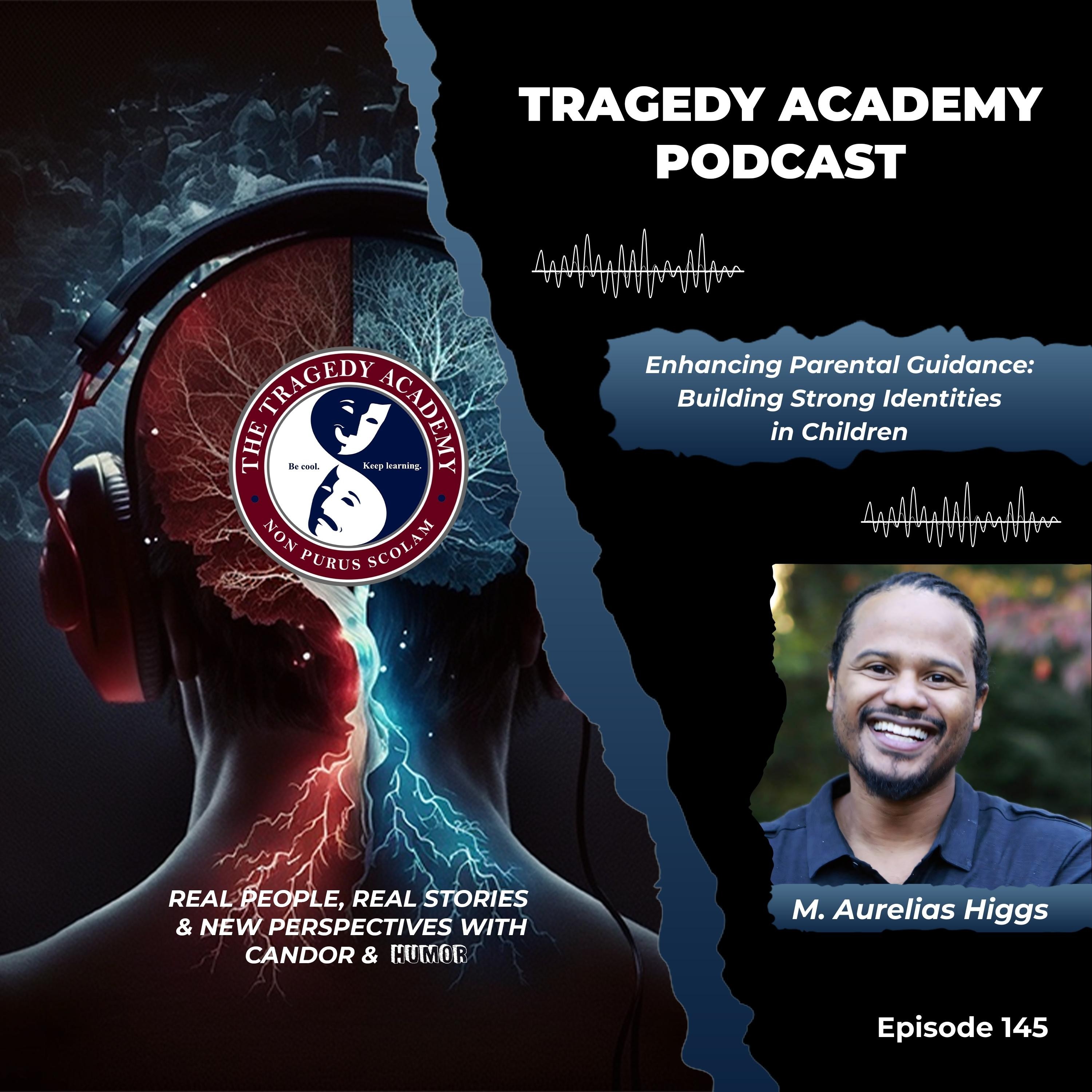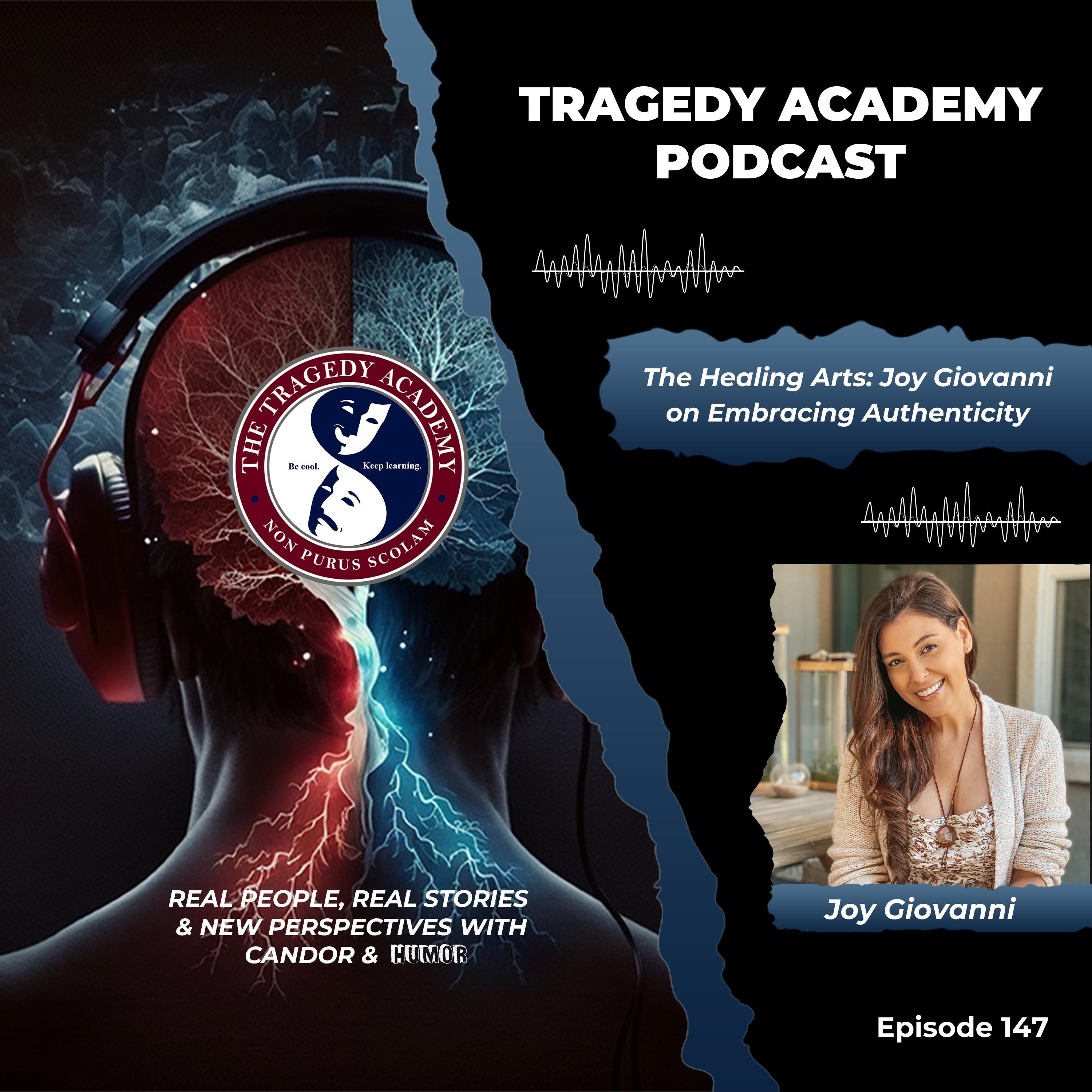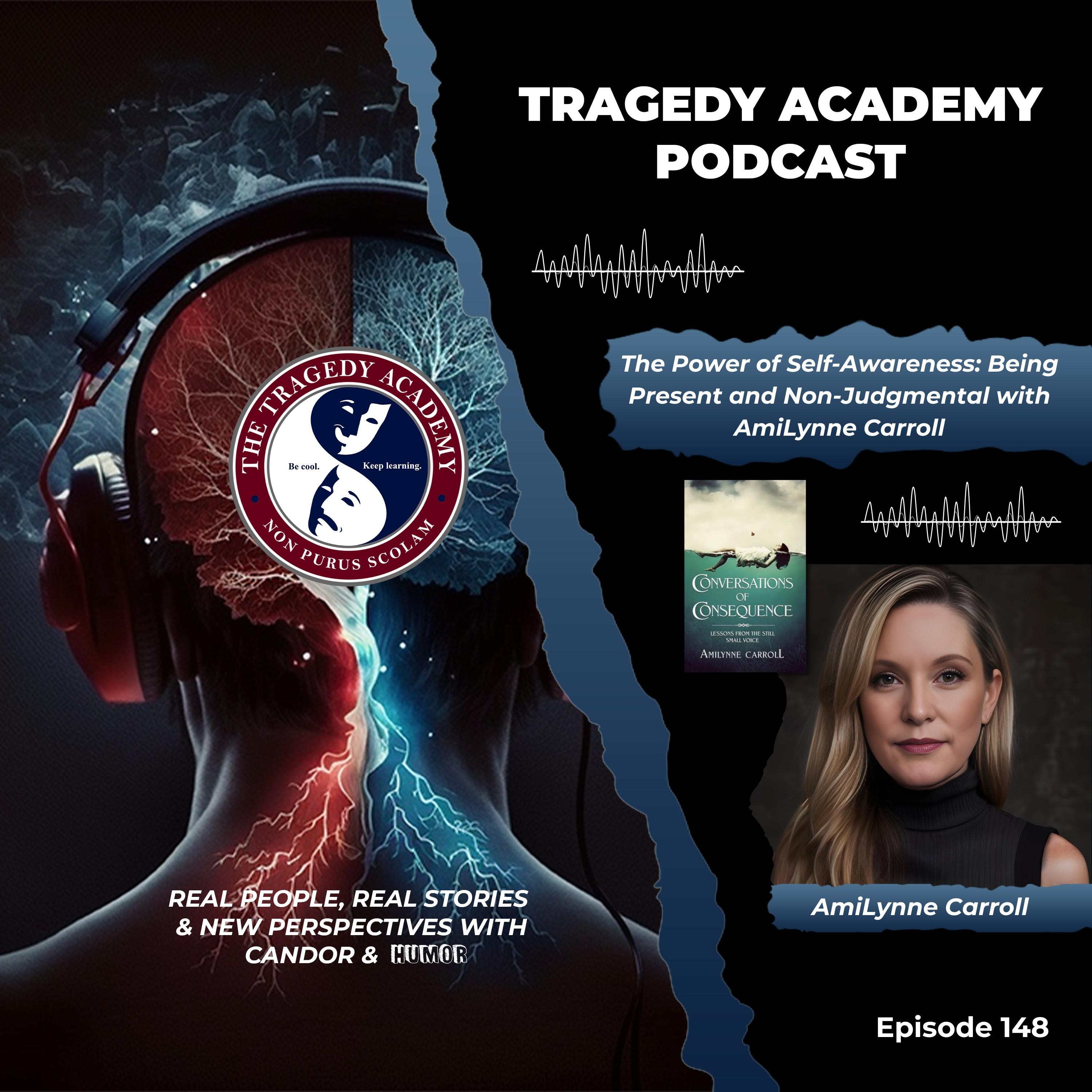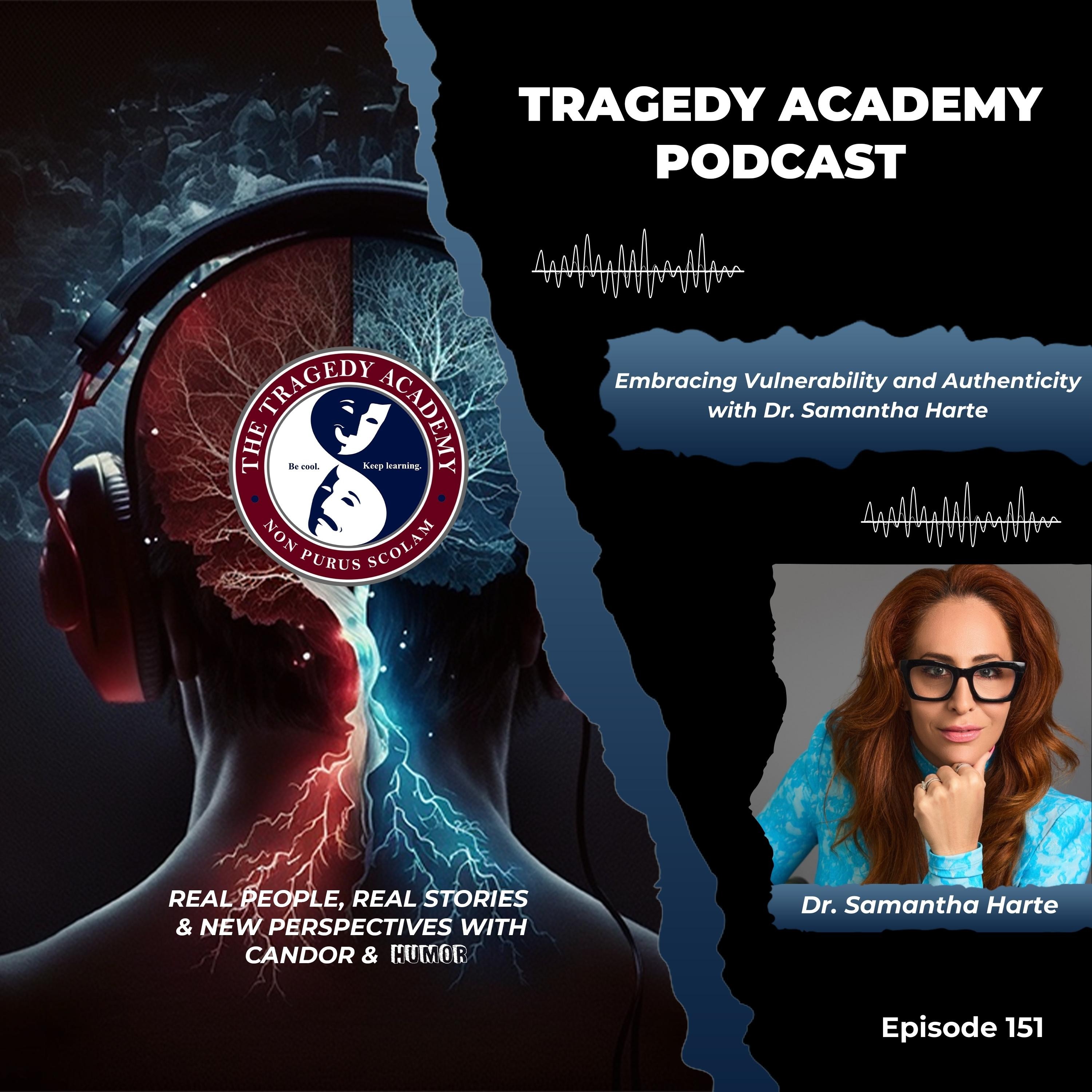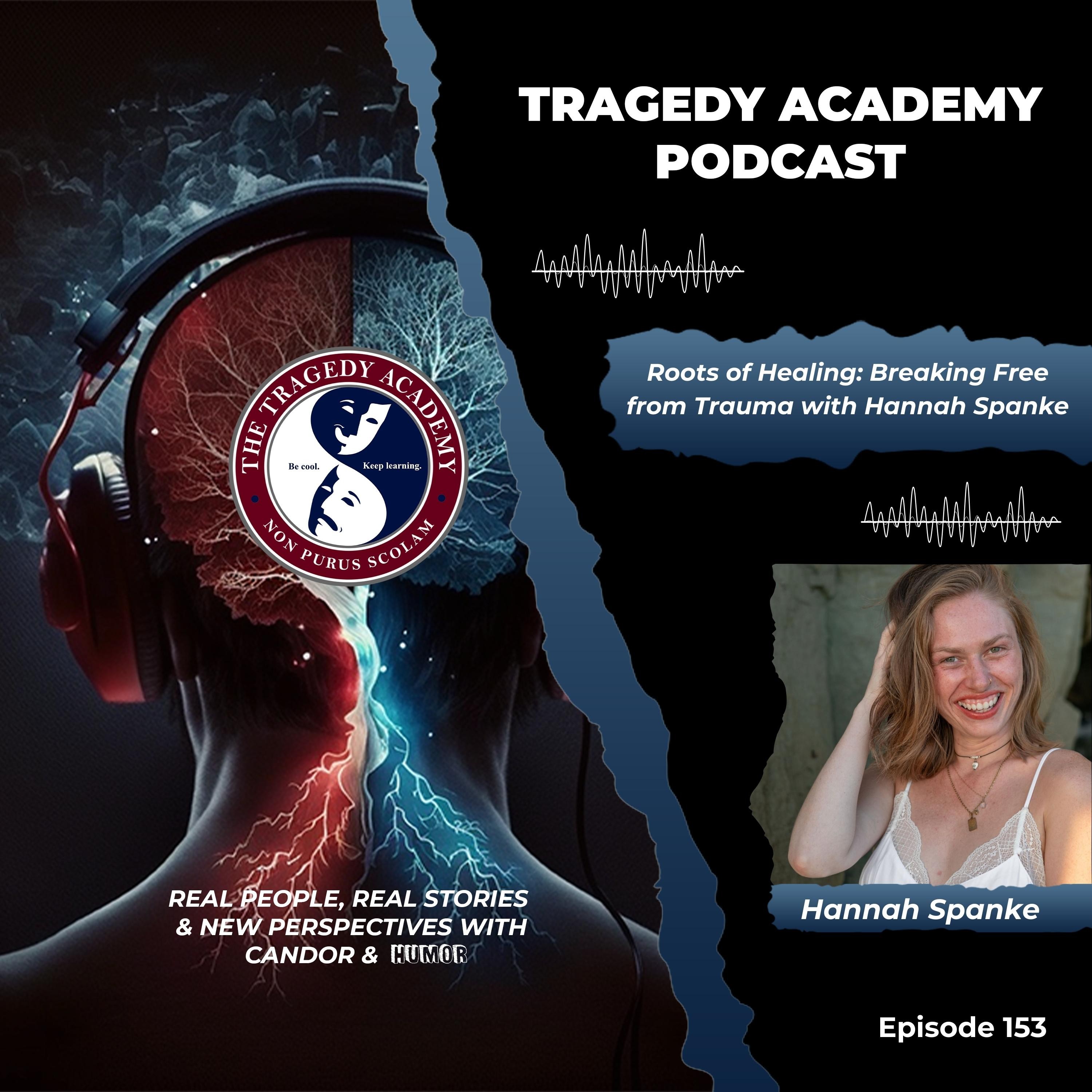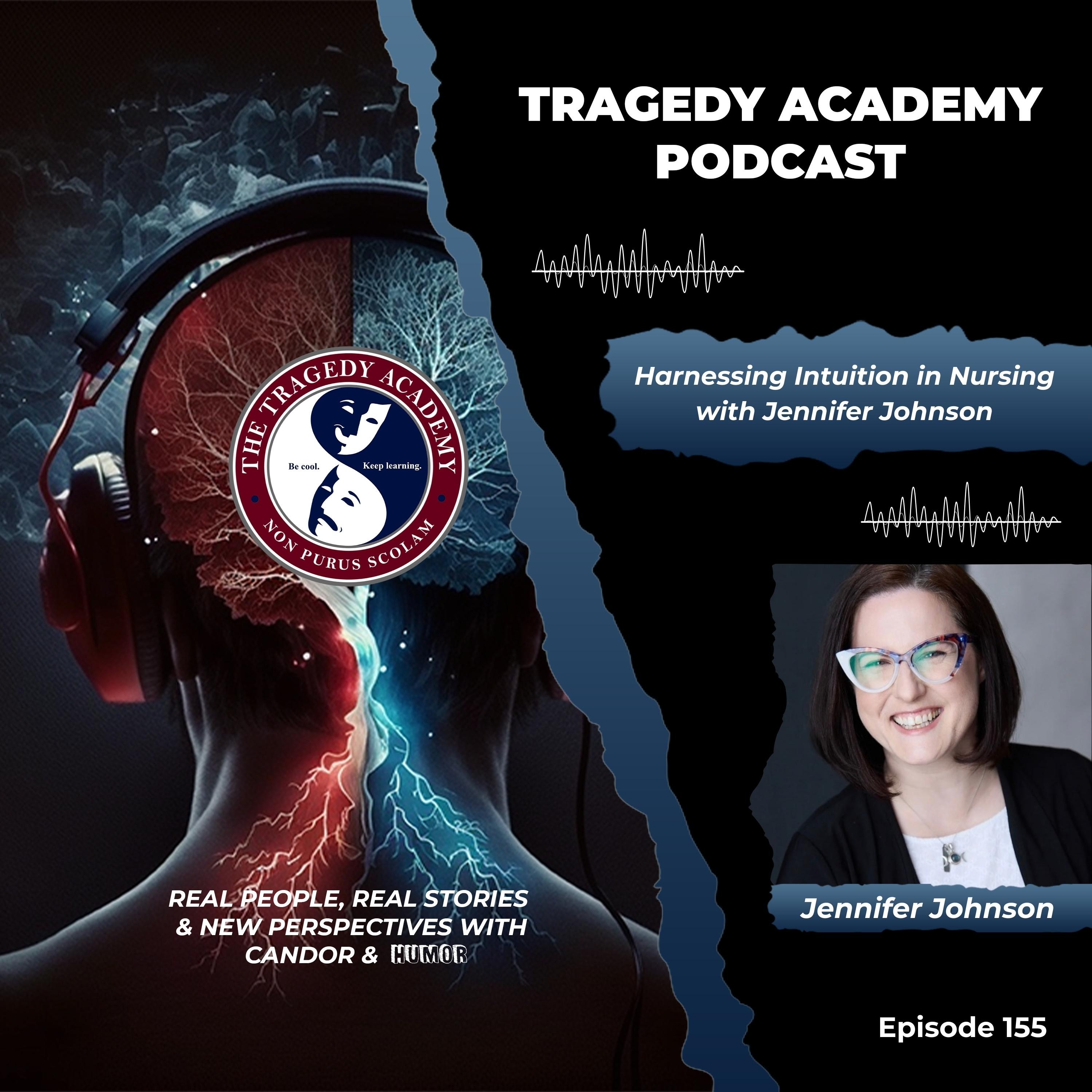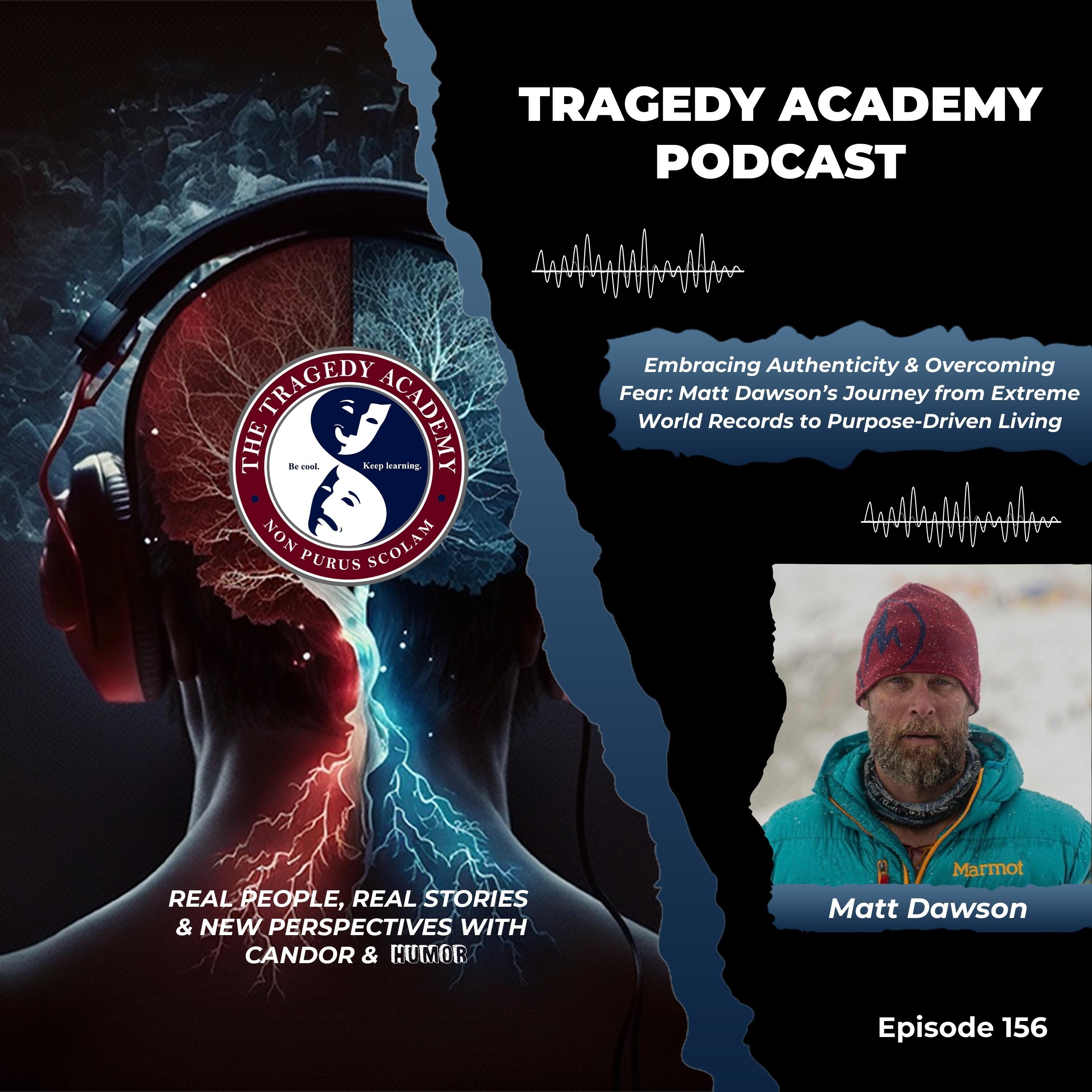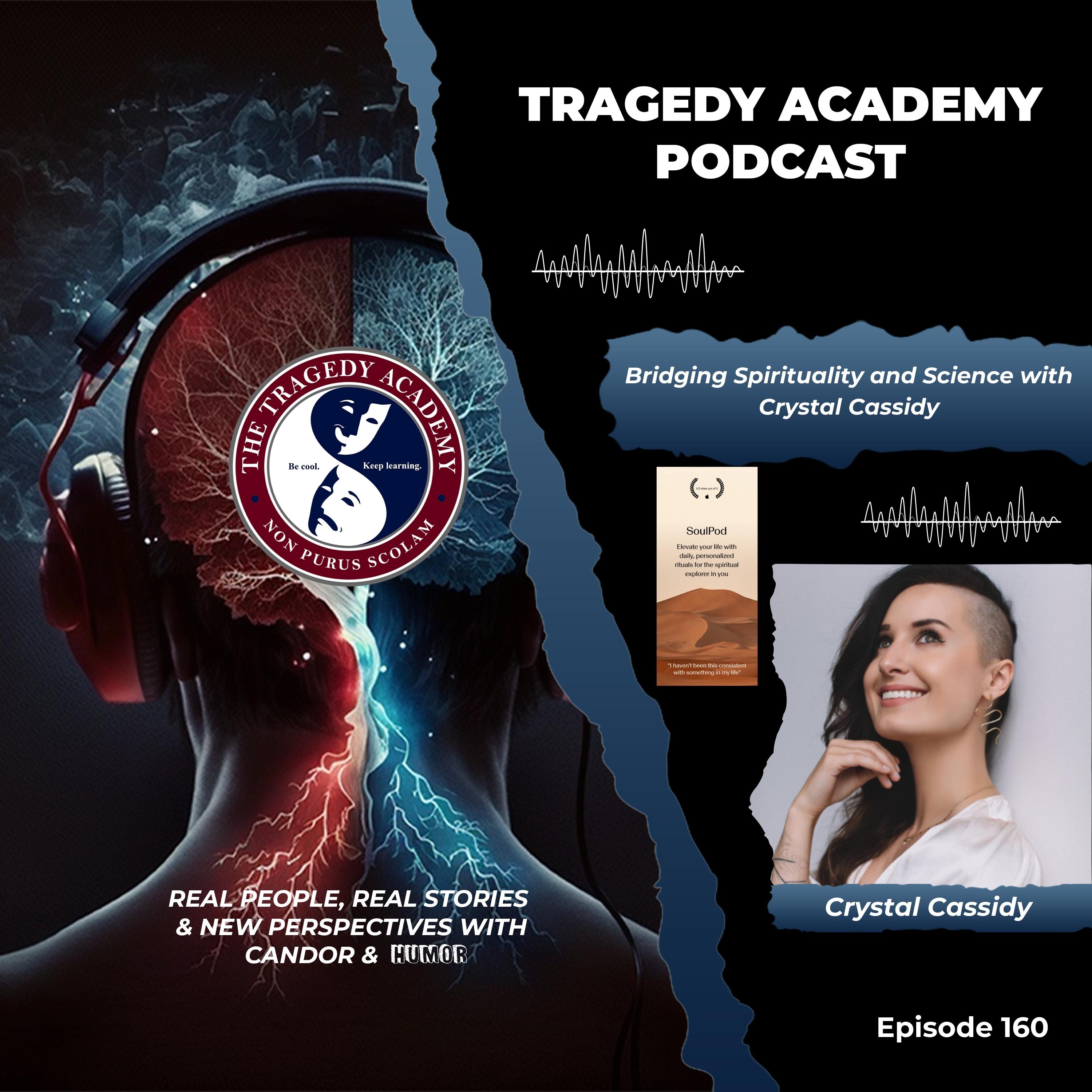Susan Gold ”Wake Up Little Susie” Trauma through a child’s eyes.
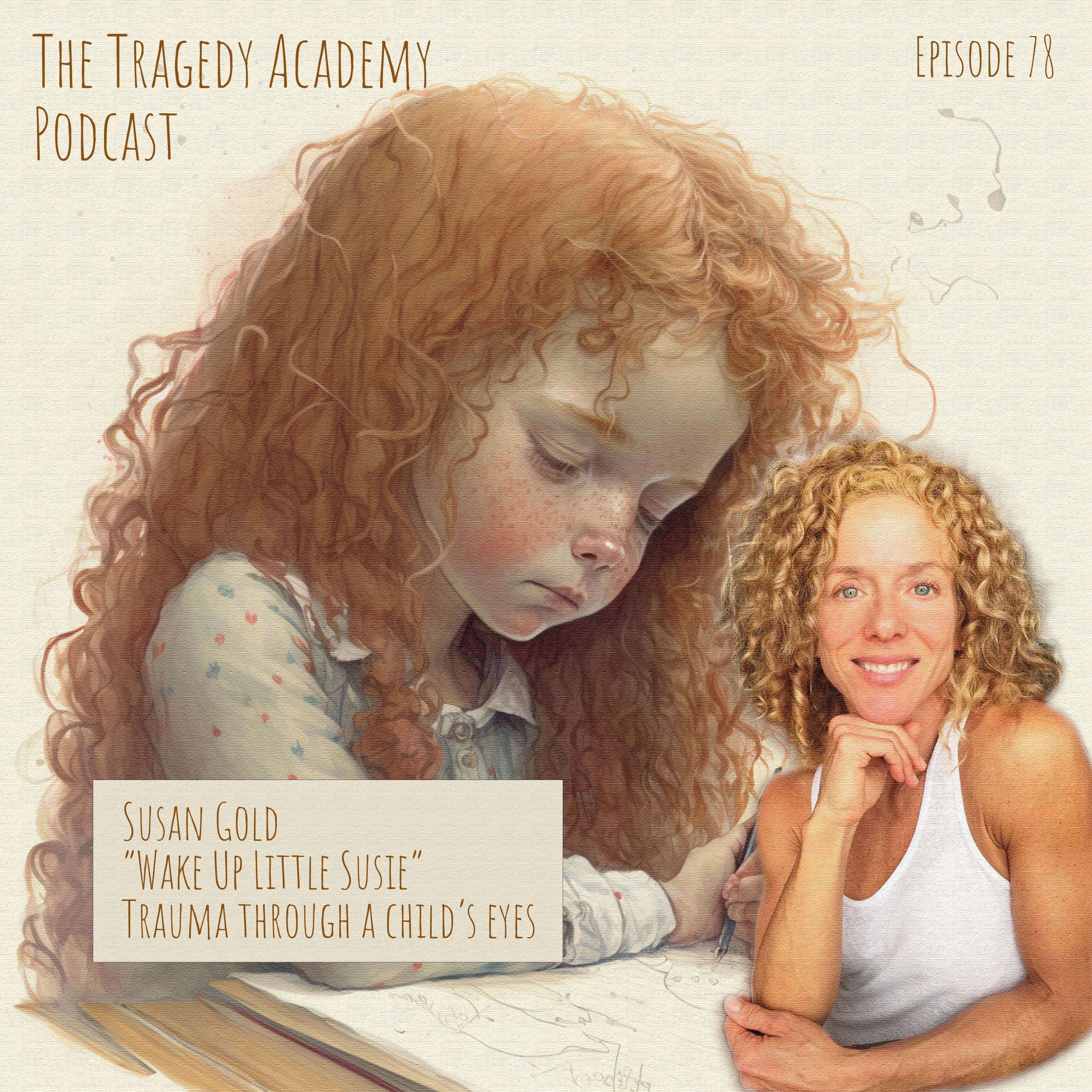
Welcome to episode 78 of the Tragedy Academy, where we explore the stories of those who have overcome great struggles and come out on top. This week, Jay sits down with Susan Gold, a woman who has turned her own personal tragedy into a successful career as a producer and talent broker. Susan shares her inspiring journey of using her ability to discern where people are best applied, honed from her own trauma, to make a name for herself in the entertainment industry while offering actionable advice for listeners looking to improve their mental well-being. She shares how life in Montana as a coach now helps her remain at peace.
But don't let the heavy topic fool you; this episode is filled with laughter and moments of levity as Susan and Jay bond over their shared love of overcoming adversity. Tune in for a truly uplifting and entertaining conversation on the Tragedy Academy.
About Susan:
Susan Gold is a talent broker and producer whose career in entertainment has been a testament to her ability to overcome adversity. Growing up in Pennsylvania, Susan faced childhood trauma. She turned to athletics as a way to cope, becoming a nationally ranked Masters Swimmer and finishing third in her age group at the challenging Escape From Alcatraz Triathlon. However, after relocating to New York City and finding success in the cutthroat world of talent representation, Susan struggled with alcoholism. But with the help of therapy and support, she overcame her addiction and used her gifts of discernment and drive to form her own talent brokerage firm, Celebrity Talent. From there, she produced high-profile events and television segments and became a sought-after advisor for brands looking to leverage media placement and celebrity attachment. Join us as we talk to Susan about her journey and how she's used her experiences to help others in the entertainment industry.
Key Takeaways:
[12:30] Susan shares her story of overcoming trauma and how it led to her success in talent management.
[22:00] Susan and Jay discuss the importance of discernment in the entertainment industry and how it can lead to successful partnerships.
[30:00] Susan shares a hilarious anecdote about a time she convinced Andy Warhol to do a TV commercial.
[42:00] Jay and Susan discuss the importance of resilience in facing rejection and failure in the entertainment industry.
[52:00] Susan offers actionable advice on navigating the entertainment industry and making connections that lead to success.
"Quotes"
"Trauma doesn't define us, but it does shape us." - Susan Gold
"Self-compassion is the foundation for healing." - Susan Gold
Support Susan!
Email: susan@susangoldconsulting.com
Website: https://www.susangold.us/
Twitter: Susan Gold (@sgoldconsulting) / Twitter - @sgoldconsulting
Instagram: Susan Gold (@susangoldismagical) • Instagram photos and videos - @susangoldismagical
Facebook: Susan Gold | Facebook
Linkedin: Susan Gold - Executive - SGC, LLC | LinkedIn
Support the show!
Visit our website to find links to our YouTube channel, other social media, show notes, and more!
- Make a beautiful podcast website with Podpage.
- Explore professional recording options with Riverside.fm.
- Like Jay's t-shirt from this episode? Get your own at INTO THE AM.
- For Tragedy Academy-recommended books and authors, visit our Bookshop.
*Some of the links above are affiliate links, and The Tragedy Academy will receive proceeds from purchases made using them.*
Mentioned in this episode:
Connect with us!
📲 Connect with us! https://www.thetragedyacademy.com ✨ Resources & Affiliate Links: 💻 Create your own stunning podcast website with PodPage: https://bit.ly/3LSCBh5 🎙️ Elevate your recording game with Riverside.fm: https://bit.ly/3ImjNWD 👕 Love Jay's t-shirt from this episode? Get your own at INTO THE AM: https://bit.ly/431MLD5 📚 For Tragedy Academy-recommended books and authors, visit our Bookshop: https://bit.ly/42pPHcv 📲 Connect with us! 📺 Don't forget to Subscribe to our YouTube channel! 💥 https://www.youtube.com/channel/UCEUXqlregig6vcrvuVNGlKg 🙏 If you enjoyed this episode, please like, share, and subscribe to our channel for more enlightening discussions and hilarious moments. Be cool, and keep learning! 📲 Connect with us on socials! YouTube: https://www.youtube.com/channel/UCEUXqlregig6vcrvuVNGlKg Instagram: https://www.instagram.com/thetragedyacademypodcast/ Facebook: https://www.facebook.com/TheTragedyAcademy Twitter: https://twitter.com/Tragedy_Academy
This podcast uses the following third-party services for analysis:
Podcorn - https://podcorn.com/privacy
Chartable - https://chartable.com/privacy
The Tragedy Academy is a show created to bridge societal divides in a judgment-free zone using candor and humor.
Be cool. Keep Learning.
Episode 78: Navigating Trauma and Finding Self-Discovery with Susan Gold
Welcome to episode 78 of the Tragedy Academy, where we explore the stories of those who have overcome great struggles and come out on top. This week, Jay sits down with Susan Gold, a woman who has turned her own personal tragedy into a successful career as a producer and talent broker. Susan shares her inspiring journey of using her ability to discern where people are best applied, honed from her own trauma, to make a name for herself in the entertainment industry while offering actionable advice for listeners looking to improve their mental well-being. She shares how life in Montana as a coach now helps her remain at peace.
But don't let the heavy topic fool you; this episode is filled with laughter and moments of levity as Susan and Jay bond over their shared love of overcoming adversity. Tune in for a truly uplifting and entertaining conversation on the Tragedy Academy.
About Susan:
Susan Gold is a talent broker and producer whose career in entertainment has been a testament to her ability to overcome adversity. Growing up in Pennsylvania, Susan faced childhood trauma. She turned to athletics as a way to cope, becoming a nationally ranked Masters Swimmer and finishing third in her age group at the challenging Escape From Alcatraz Triathlon. However, after relocating to New York City and finding success in the cutthroat world of talent representation, Susan struggled with alcoholism. But with the help of therapy and support, she overcame her addiction and used her gifts of discernment and drive to form her own talent brokerage firm, Celebrity Talent. From there, she produced high-profile events and television segments and became a sought-after advisor for brands looking to leverage media placement and celebrity attachment. Join us as we talk to Susan about her journey and how she's used her experiences to help others in the entertainment industry.
Key Takeaways:
[12:30] Susan shares her story of overcoming trauma and how it led to her success in talent management.
[22:00] Susan and Jay discuss the importance of discernment in the entertainment industry and how it can lead to successful partnerships.
[30:00] Susan shares a hilarious anecdote about a time she convinced Andy Warhol to do a TV commercial.
[42:00] Jay and Susan discuss the importance of resilience in facing rejection and failure in the entertainment industry.
[52:00] Susan offers actionable advice on navigating the entertainment industry and making connections that lead to success.
Episode 78: Navigating Trauma and Finding Self-Discovery with Susan Gold
Welcome to episode 78 of the Tragedy Academy, where we explore the stories of those who have overcome great struggle and come out on top. This week, Jay sits down with Susan Gold, a woman who has turned her own personal tragedy into a successful career as a producer and talent broker. Susan shares her inspiring journey of how she used her ability to discern where people are best applied, honed from her own trauma, to make a name for herself in the entertainment industry while offering actionable advice for listeners looking to improve their mental well-being. She shares how life in Montana as a coach now helps her remain at peace.
But don't let the heavy topic fool you, this episode is filled with laughter and moments of levity as Susan and Jay bond over their shared love of overcoming adversity. Tune in now for a truly uplifting and entertaining conversation on the Tragedy Academy.
About Susan:
Susan Gold is a talent broker and producer whose career in entertainment has been a testament to her ability to overcome adversity. Growing up in Pennsylvania, Susan faced childhood trauma and turned to athletics as a way to cope, becoming a nationally ranked Masters Swimmer and finishing third in her age group at the challenging Escape From Alacatraz Triathlon. However, after relocating to New York City and finding success in the cutthroat world of talent representation, Susan struggled with alcoholism. But with the help of therapy and support, she was able to overcome her addiction and use her gifts of discernment and drive to form her own talent brokerage firm, Celebrity Talent. From there, she went on to produce high-profile events and television segments, and became a sought-after advisor for brands looking to leverage media placement and celebrity attachment. Join us as we talk to Susan about her journey, and how she's used her experiences to help others in the entertainment industry.
Key Takeaways:
[12:30] Susan shares her personal story of overcoming trauma and how it led to her success in talent management.
[22:00] Susan and Jay discuss the importance of discernment in the entertainment industry and how it can lead to successful partnerships.
[30:00] Susan shares a hilarious anecdote about a time she convinced Andy Warhol to do a TV commercial.
[42:00] Jay and Susan discuss the importance of resilience in the face of rejection and failure in the entertainment industry.
[52:00] Susan offers actionable advice on how to navigate the entertainment industry and make connections that lead to success.
"Trauma doesn't define us, but it does shape us." - Susan Gold
"Self-compassion is the foundation for healing." - Susan Gold
Support Susan!
Email: susan@susangoldconsulting.com
Website: https://www.susangold.us/
Twitter: Susan Gold (@sgoldconsulting) / Twitter - @sgoldconsulting
Instagram: Susan Gold (@susangoldismagical) ⢠Instagram photos and videos - @susangoldismagical
Facebook: Susan Gold | Facebook
Linkedin: Susan Gold - Executive - SGC, LLC | LinkedIn
Support the show!
Visit our website to find links to our YouTube channel, other social media, show notes, and more!
⢠Make a beautiful podcast website with Podpage.
⢠Explore professional recording options with Riverside.fm.
⢠Like Jay's t-shirt from this episode? Get your own at INTO THE AM.
⢠For Tragedy Academy-recommended books and authors, visit our Bookshop.
*Some of the links above are affiliate links, and The Tragedy Academy will receive proceeds from purchases made using them.*
[00:00:00] Jay: Yeah. I had to learn all this stuff. I'm not from this background. Um, I had never produced music before either. Uh, never produced. No, not at all. And it just became a gateway to understanding myself and releasing a lot of trauma. Um, and I didn't even realize it at the time. I always understood that I had, you know, some kind of relationship with music, but I wasn't quite sure where it was supposed to be exercised.
[00:01:01] Jay: And then once I had sat down in front of a digital audio workstation and started looking at samples and different sounds, I was like, I hear it. It just became something for me and I. Release certain thought processes through certain songs, and I wasn't even realizing it. You know, I was changing who I was.
[00:01:21] Jay: It was one of the levers that I was pulling during that meditation process and growth process. And slowly I started to realize it. But in the beginning it just, you know, I always knew, I felt different after I produced music and it just became a love affair. And it's something that I do every single day in some way, shape or form. So that's enough about me.
[00:01:45] Susan: that's that's a beautiful way to walk into music production and what a heart-centered.
[00:01:49] Susan: way to enter
[00:01:50] Jay: I feel very grateful for what talents I didn't know I had, and the timing with which I received them, because I would've squandered them much earlier in life. I wouldn't have had the. What is it? No junk, no soul, or something like that. Um, I don't even know if I quoted that right, but I'm pretty sure that you've gotta have a jacked up life to have some soul to be able to put music together, , because there's nothing worse than a 13 year old trying to tell you about the blues.
[00:02:18] Jay: Um, it doesn't work . So welcome to The Tragedy Academy, a show created to bridge societal divides in a judgment-free zone using candor and humor. My name is Jay, and I am joined today by Susan Gold, who has so many different hats that she has worn throughout her lives. I thought I had too many. Um, but you've got a ton and they're all interwoven.
[00:02:40] Jay: But currently you're a psychotherapist, um, working out of la Correct? Is that what it was? A psychotherapist?
[00:02:47] Susan: So I'm actually coaching and I'm working outta Montana. I made a big move out of la, um, in March, and becoming a coach is part of that move,
[00:02:57] Jay: Okay, so I saw that you had New York, LA, and that you were in Montana. I wasn't sure, I was kind of trying to figure out how you were balancing a connection with people in LA while you were living in Montana. Not that
[00:03:12] Jay: I would, I would love actually to have that remote workspace to be talking to people in LA and be able to walk outside, lay on my back and look at the stars. What the hell?
[00:03:21] Susan: I still talk to people in LA and I still talk to people in New York, but I'm really grateful to he, he did that inner call, Jay. It was time to, to leave the metropolis behind and get a little quiet too. Um, and it's actually helped me become clearer, uh, and moving forward on the new path. .Um, and I'm continuing to consult in the same arena that, that I had.
[00:03:47] Susan: But, um, I've just been sort of propelled and, and you're right, EV, every little bit of my life experience has come together to weave this incredible brocade and deliver me to where I am now. It's, really quite magical looking back
[00:04:02] Jay: it's great when you get to see it all come together because all those pieces, if you were looking at a puzzle, you know, we always want the straight ones. We try to do the edges first. We don't respect the fact that all of those inside pieces are so beautiful and they require so many different experiences in order for them to match another piece. And once that picture's done and you take a step back, you're like, holy shit, this is what was happening the whole time. This is where I was going. That's why that happened. You find peace.
[00:04:37] Susan: And I I think it's a, it's a really unusual way to look at at trauma. I mean, certainly I had a really chaotic upbringing. I was raised by two genius, magnificent, completely dysfunctional adults. You know, my dad was a. and my mom was popping speed because that's what you did. You got diet pills from the doctor and that was speed and, and I didn't understand, and they had five kids and I was smack in the middle of it
[00:05:08] Jay: And nobody said a word
[00:05:10] Susan: nobody
[00:05:12] Jay: That was, it was, you were not allowed to tell your neighbor that you were the one doing it. What the, I always do that stupid analogy, but it, it just rings so true to me. And it's the western set, the old Western set where everybody has like this little house in the front and then behind it, there's these two by fours and in the back are all these dysfunctional last families laying on the ground in little huddles.
[00:05:39] Jay: And then they come back out the door and you know, I'm thinking of the fifties guy, cuz what you're explaining now is like that fifties, sixties parent that comes in, you know, like dinner's ready, wife's all hopped up on pills just so she can make dinner on time. And the
[00:05:52] Jay: man's coming home and hanging his hat, you know, and bitching about the smell or whatever happened that day. Drinking a highball,
[00:05:58] Jay: like that's what's waiting for him. Did I sum that up?
[00:06:03] Susan: Yeah, except the dry sink open at seven 30 in the morning and you hear blow.
[00:06:07] Jay: Oh no.
[00:06:09] Susan: So it's, it started early, but honestly like I am so grateful to have been born into that, and I'm a firm believer in the fact that, yeah, I chose that traj trajectory because that gave me so much to work with in my adulthood and to evolve through.
[00:06:28] Susan: So I'm grateful. It's definitely, it was abused and hurt children raising, abused and hurt children
[00:06:36] Jay: Can you repeat that? Oh, hold on a minute. I think people need to
[00:06:39] Jay: hear that it was who raising who
[00:06:42] Susan: it was abused and hurt children. Raising, abused and hurt children. And honestly, Jay, that could go all the way back in the lineage. I mean, my
[00:06:54] Jay: Ever seen a strand of dna?
[00:06:58] Jay: you might as well be walking down that thing like you're on Rainbow Road in Mario Carter, some shit, because it's all gonna be the same. Each one has a rung to the next one. There's an attachment and there's a little shit left over for the next one. So you get that, you know, epigenetic or
[00:07:13] Jay: whatever they call it.
[00:07:14] Jay: Fucking issues of your parents, like I'm drinking and I like to wink when I say certain things because I got weird traits from my parents.
[00:07:22] Susan: yeah. But it all worked out in the end. And oddly, like all my siblings, they've all had a different experience. My sister thinks she lived in a really incredible upbringing, very supportive. My oldest brother. Everything's blacked out, you know, it's. It's very different, um, the experience, but I'm grateful and it did, you know, project me out in a, in a very positive way to experience all that life could offer the hard way, maybe
[00:07:50] Jay: So let me
[00:07:51] Susan: but it's all working out.
[00:07:52] Jay: lemme ask you a question. I'm sorry. I didn't mean to cut you off there, but it, it curiosity jumps in. I have things that I write down, stuff that I wanted to discuss, but when I see someone come from a traumatic background and then enter the entertainment industry because you had a very unique job for a long time of marrying people to roles and that takes someone that has lenses that other people do not have.
[00:08:21] Jay: It took me a long time to understand that. , do you find that growing up in an environment like that almost gives you the ability to recognize multiple personalities
[00:08:39] Jay: within people? Because we come out with such a lack of personality in those situations so that we can pick through people. Does that make sense?
[00:08:49] Susan: It totally makes sense? It's completely insightful. I'm really glad you shared that. I mean, I was dealing with multiple personalities within my upbringing and I, I was quite telepathic and very tuned in to like an angelic, bright white light energy. I felt protected. Um, and I could read people. Until it became too dangerous to do it and I shut it down. But I did have that capability in my adulthood and I was very able to really listen and see through. And it did help me. I mean, my first deal, with my own, I started out at large talent agency icm and then went with my boss when he formed his own agency. And that's really where I learned how to negotiate talent deals. But he had a little issue with sexual addiction. He used to call in actresses and have me leave conveniently and then tried it on me and I left. And at the time I happened to be training Barbara
[00:09:51] Jay: was about to say, wait a minute though. You have guns? Like I would not like . In the first picture I saw, I'm like, what is this guy trying to do? Like I could see you jabbing somebody in the nose just for getting outta
[00:10:02] Jay: line. Like you're super sweet, but you're also tough as hell.
[00:10:07] Susan: Well back then it was kind like that was the given. I mean, thank God for me too, but it was like expected, you know, as a woman in that arena, you just expect that's coming your way. So like literally he chased me around the office and tried to grab my crutch. I grabbed my purse, I left the next morning.
[00:10:26] Susan: I'm with Barbara training her. She knows I'm rattled. She gets it outta me and she's like, I'm coming down there to work with you this morning and we're gonna confront this guy.
[00:10:36] Susan: And I'm like, yeah, I'm ok. Barbara Walters. Yeah, I
[00:10:39] Susan: used to
[00:10:39] Jay: her
[00:10:39] Jay: man. She's a champ. She was such a freaking champ. Went after everything. No injustice could go Untaken care of.
[00:10:48] Susan: Well that's because she experienced it herself. And I used to watch her on my beanbag on my belly in my basement. Yeah, I wanna be like this woman someday. And there I was training her and she offered that kind of friendship. She was awesome. and she also offered me a job with her then fiance who was heading Laura Mar Adelson.
[00:11:08] Susan: But I had done enough of the assistantship, so I confronted my boss, I took my stuff, I realized I didn't have all my stuff. I went back, he had already changed the locks on the door. and I didn't take the assistantship with Barbara's fiance, Merv at Laura Marr. I decided to open my own talent brokerage for matching celebrities brands, cuz that's what I had been doing.
[00:11:30] Susan: And my first deal was, Uh, donnie Deutch, who's got a couple of shows and an entrepreneur was running his dad's ad agency and wanted Andy Warhol to endorse his Pontiac climb. ,and I'm like,
[00:11:45] Jay: just Andy
[00:11:46] Jay: Warhol like,
[00:11:48] Susan: I was desperate. Like I, I was, you know, I had, you know, a month of income in, in my bank account. I was in an abusive relationship that I didn't want to go back into
[00:11:59] Jay: ooh.
[00:11:59] Susan: because I was financially dependent. So I knew I needed to make it. I was willing to go to any lane. And I go, I'll give it a shot. I, I couldn't get Fred on the phone, who was Andy's manager.
[00:12:11] Susan: So I went down, I took the train down to the factory and I knocked on the door, and Fred answered and he said, come back tomorrow and I'll let you talk to Andy. So I went back the next day and knocked on the door and waited in the foyer and was sweating bullets, like, what am I gonna do? And the door's open and Fred goes, Andy will see you now. and I'm like, go in. I'm talking. I'm blabbing and he's not, Andy's not looking at me. He's like, Pennine, and there's three pugs running around the studio and they're jumping up in his arms and he's like paying attention to those pugs and he's loving on Thoses and he doesn't wanna have anything to do with me.
[00:12:47] Susan: Finally looks up at, me, he goes,
[00:12:51] Susan: now why should do and I? Because you can have the pugs in the with you. Boom. He said, yes, and that was like, that was the deal. That's That's the path
[00:13:02] Jay: Genius. You, you baited that so Well, You saw what commanded the most of his attention, where his love lied. And in that
[00:13:13] Jay: moment it, lied so much with those dogs. And guess what? It's also gonna translate real damn well on camera to, everybody because it's
[00:13:20] Jay: what authentic,
[00:13:22] Susan: and I learned it growing up in my home. I learned it, how to deal with my parents, how to, how to work with my brother, how you know how to. So it came in really handy and it me
[00:13:34] Susan: well.
[00:13:34] Jay: when did you realize that you had it? Because that doesn't go hand in hand. It takes a long time to, at least for myself, to look backwards and go, well, that's what I was doing throughout my life. That's how I ended up getting by here, here, and here. This is why I managed not to link up with these type of people.
[00:13:57] Jay: This is why I didn't understand when someone would hire someone, they would look to me like they were twisting an imaginary mustache, but everybody else was happy with whatever they were ready to bring to the table, . But as far as I was concerned, they may as well have been some kind of villain. So easily seen.
[00:14:18] Jay: But in the, in retrospect, I could see that now, but coming through it had no idea what I was doing.
[00:14:23] Susan: Well, I had to say in my case, that sort of unveiled itself in multiple places. , but I think the biggest unveiling was like, fast forward when I went to LA and it was really to meet my biggest guru who now I'm completely grateful for. But he became my ex-husband and I really fought, like finally I found unconditional love and really what I found was a huge screaming narcissist who was sucking me dry.
[00:14:57] Susan: And we had a child, we ended up, I confronted him trying to make him come to the plate and act with integrity. And instead he folded his arms and said, I'm hiring an attorney and I'm filing for divorce. And my big wake up call was I was on a mattress in a partial conversion in the garage while he was in the master bedroom.
[00:15:23] Susan: For a year. And that's the kind of billboard it took to fall on my head to realize where I was, what I was allowing. And that's the opportunity I really had to steam my true authentic power. Who I, who I really
[00:15:40] Susan: am, what my strength is. Cause people always told me, oh, you're so strong, you're so accomplished.
[00:15:46] Susan: I didn't feel any of that. And I was very codependent on a relationship and I had terrible fear of abandonment, like horrendous. So that final instance is Really.
[00:16:00] Susan: one of the biggest lessons so far. Knock wood. Where's the wood
[00:16:05] Jay: All right. It's that's the beauty of life. The only thing permanent is change, so we know it's coming in one way, shape, or form, but I love that you pointed out that you are on the ground metaphorically, literally everything in between, and I say this all the time, just like a plant, a seed requires the ground to grow and we as well require the ground to grow.
[00:16:31] Jay: We have to fracture those lenses of experience that we've taken over time and fooled ourselves into believing that those different layers and tents are truly what it is that we're seeing and taking in. When in reality, it's just those layers of experiences that we're actually holding onto our face.
[00:16:54] Jay: That's. Big cosmic joke is that we're literally, like if you had glasses with all these lenses on 'em, there would be like a rope on the back of your head that you were pulling real hard as you walked around through life. And without realizing that if you just slipped that little band and let 'em fall off, you're
[00:17:13] Jay: standing in a sea of people that are all wearing glasses looking at each other, not realizing what the F is going on.
[00:17:22] Susan: It's So true. I, I have to ask you though, have you learned that hosting all the episodes of the Tragedy Academy that you have, or has that come through other avenues because you're very clear about that? It's awesome.
[00:17:36] Jay: So for myself, um, early on in the show, I talked about a spiritual journey for myself. Um, I had gotten to a point. In my career where I was supposed to have checked all the blocks and this was where I was finally going to obtain happiness. But like yourself, I didn't grow up with the, uh, best background.
[00:18:02] Jay: Um, lived pretty indigent, didn't have a front door for a long time. We had, uh, windows boarded shut. We had a cooler for periods of time. You know, we had some alcohol and drugs around and things like that. And, um, I ran, I ran, I joined the Army, did some time there, got out, and then I started checking the blocks.
[00:18:23] Jay: Um, much like yourself, I could see all these different locations where you had excelled probably.
[00:18:32] Jay: The pinnacle of the career point each and every
[00:18:35] Jay: time, only to go and find a new one. And I kind of did the same thing because I was lost. I was so lost trying to find who I was in my life that I literally had worn so many masks that allowed me to start to realize that they're all masks,
[00:19:02] Jay: that everybody has one in the beginning that's issued to them.
[00:19:08] Jay: It's issued to 'em by their parents. They get up and after a certain age, they've had enough inputs and they'd go out into the world and they have a choice. You can either wear that mask and walk through life and be proud of it or take it off even better, or you start to collect them. because you get so many personalities.
[00:19:34] Jay: Each time you come across somebody, you have like all these different voices. And it started to, to dawn on me one day. The more I meditated, I started meditating four years ago as well, and it started to see me, allowed me to see the fractures in things because time had slowed down, right? And it allowed me to see those personalities that were coming out.
[00:19:55] Jay: I e, when you pick up the phone, you talk to your mom, you've got one voice. When you pick up the phone, you talk to customer service, you got a different voice. When you're out at a nice dinner with your boss, you have another voice. When you're at an interview, you've got another voice. Why is that? It really bothered me because those were not the real person.
[00:20:21] Jay: Those were all masks. And the problem was I was collecting them. because you can't throw away a mask because you have to remember who you were the last time you had that interaction. Because we have such an effed up reality that we have to know who we were at any given point throughout time. So what does that become?
[00:20:48] Jay: Big fucking bag, like Santa Claus full of shitty masks over your shoulder that the older you get, you literally look like you're trying to find change in the bottom of your nana's purse to get your mask right before you have a conversation with somebody. Then it's covered in fucking stinky candy and dirt and everything in between.
[00:21:07] Jay: Like we function this way
[00:21:10] Jay: though. But it dawned on me one day that I don't have to do that. That all I had to do was just take it off and give me a. Stand up, run out there and just start acting like a goddamn fool. The reason why I say that is because you spent time with my human spirit, animal Jack Black, and when I look at him, this is what I'm describing.
[00:21:48] Jay: It's somebody that acts on impulsivity with a connection to who they are, knowing that it will be received a certain way because that's how we're designed. He's accepted these. He's an authentic puzzle piece and he hands himself to everybody and we're always open arms. Why? Cause he is real. You get what you get.
[00:22:09] Jay: That's why we love them. That's why we love artists. That's enough from me, . I get on tangents with this cuz it's just something I'm very passionate about. because I feel like we take the burdens of our life, our experiences, and we wear them when we don't have to. Like they're just, they're, they're chains.
[00:22:29] Jay: Remember the junkyard dog, like back in the eighties and nineties in wrestling, he always had like toe chains and all that stuff around his neck. I feel like those are the shitty experiences.
[00:22:39] Susan: And I think the, the real sort of metamorphosis and transformation for me was to realize that I was carrying that dogma and to really say, wow, well how is this serving me? Let me look back. and that's when I could really gain clarity and see that, I mean, that divorce experience was such a gift. I, I, it didn't feel like it, it felt really unjust.
[00:23:09] Susan: I mean, this guy, like, he didn't come to the plate. I was flagging like most of the bills and stepping up. And then in California it's 50 50 and he was literally trying to take the home. I bought for a family away from my son. I had to buy my home for a second time, you know, and it just, it showed me, hello, you're not a victim.
[00:23:32] Susan: You, you can say no to this. You can draw boundary. You don't have to drag this along to be okay. I mean, it was like a really tough example. And a lot of women don't get out of those relationships. They stay in those relationships for life, but, You know, I, I am really proud of myself that I walked through because it was an incredible gift on the other end.
[00:23:56] Susan: I mean, I'm free, I'm so much more free now, and I see how much more I can go, you know? But I have so much freedom now from
[00:24:06] Susan: recognizing that setup, that scenario that I'm a a victim
[00:24:13] Jay: oh, it's a comfortable chair, isn't it?
[00:24:16] Susan: Well,
[00:24:16] Jay: We pretend like it's not, but that damn thing's like the 1990s Barker lounger of fucking chairs. It's like that one in Brookstone with the leg massager. You slide your hands in. Everybody acts like the victim chair. Is that one in like the corner of the
[00:24:32] Jay: room in elementary school that you, had to sit in? It's not that one. It's a beautiful chair because nobody can get out of it or nobody can get out of it for you.
[00:24:42] Susan: No, you. You gotta lift your A
[00:24:44] Jay: get to sit in it with no shame. Victim cancels shame. Victim cancels action. What I heard you saying earlier was actionable steps to get what you want in life. I don't think a lot of people think that it's having some kind of drive or it's a goal or it's.
[00:25:11] Jay: Any of these other things that are not tangible in the now, right? We can have dreams and aspirations and we can have things that we want to overcome, but in all, for all intents and purposes, it's only now, and the only way that you can create something is to spin it in place. If you spin it in place and you create in place, then you're going to move forward.
[00:25:35] Jay: Every person you see out there that's fucking successful and happy, they're just doing what they love and spin it in place. They're not worried about what's coming or what went, just making, creating. I don't care if you're an actuary or a fucking
[00:25:49] Jay: I don't journalist, or whatever the hell it is, whatever you're inclined to do,
[00:25:53] Jay: but action.
[00:25:54] Susan: I am trying to think of all the times that I didn't stay stationary for long. Like even when I got clean, you know, there was that little voice inside me and that light inside me that was getting dimmer and dimmer and dimmer. And I knew that that's, that's what was gonna keep me alive. So it was like this choice.
[00:26:13] Susan: Am I gonna face my behavior and my fears, my panic of like getting through life without a drink. I didn't even know how to go meet somebody without having some kind of alcohol there. Like to really face that down and stand up and say, okay, this isn't working. This isn't what my life was supposed to be.
[00:26:37] Susan: I'm hanging out with really seedy people. My career's going nowhere. I gotta step up to this. It takes a lot of courage, but man, did that project me into a whole
[00:26:47] Jay: new Alcohol's a bitch.
[00:26:51] Susan: Yeah, it is.
[00:26:51] Susan: it's.
[00:26:52] Jay: is the nastiest of energies that you can consume out there that we don't discuss in manners that we should. So I had a analogy that popped into my head this morning cuz you know, I like metaphors and analogies and descriptions and things like that and I was trying to figure out one, and then alcohol just came up, right?
[00:27:11] Jay: Um, I try to explain to people what yoga or meditation or exercising or any of those things means to me and how I can utilize it to navigate, say my mental health or my overall wellbeing because they're all interconnected. And the analogy I came up with this morning, the, when I was thinking about this, was like, imagine like that little soft towel that you get when a baby's born, right?
[00:27:46] Jay: You get that nice little soft towel and. You go throughout life and you use this towel, but this is you. You get it soaking wet. You fill it with all these things and you get dirty and clean and dirty and whatever. But for me, exercising or meditation or yoga was a method for me to ring out whatever that liquid trauma or stress was that existed in the hand towel.
[00:28:25] Jay: That was my body, right? So when I approach yoga, my process is, I can think about it, spiritu. , and I understand it, but I also understand that for some people it gets into this area that they're not allowed to think in because it's scary or whatever it is. So my explanation is that that twisting and contorting of the body, that movement that they're making is simply a different method to ring out the same rag there's ringing out their spiritual grimes and liquids by twisting themselves or running, let's say you're, you do calisthenics.
[00:29:08] Jay: Well, that's taking the towel and fucking shaking the water out of it, or the dirt, you know, it's just different ways to approach it. But at the end of the day, we're all
[00:29:16] Jay: finding different ways to clean ourselves out and utilize those ways to, to, get to a, a more centered space.
[00:29:26] Susan: which is so exquisitely beautiful. But I, but I also have to share that I took that to the extreme. I took it to the other side of the table. Like I was studying dance since I was three years old. And always, you know, physic, physically active, um, and sort of using that to control the chaos around me. And it really became exacerbated as I was in that abusive marriage.
[00:29:56] Susan: I didn't really understand. I was in. and as an adult I became like a crazy athlete training like an NC two, A champion, you know, even told, I, I was, initially I was marathoning and then my body became so tired and drained. I decided, okay, I'll spread it out over three things. I'll start triathlon. So I started triathlon and then I couldn't triathlon anymore cuz of the injuries.
[00:30:25] Susan: So I'll start swimming. And I became like a nationally ranked swimmer, having not done it before ever, and throwing kettle bells and going into the hot yoga room and using it like it was heroin to, to get through my day because I was in this marriage that was so excruciatingly painful. I wanted to do anything I could to numb it.
[00:30:49] Susan: So I had to, and then I couldn't, I, I was. I had a national ranking and I was training like a dog, and the next thing I knew I couldn't walk around my block, and this was my identity, like this was, I had world champions and Olympians who were in the next lane swimming next to me, and that I was taking training from, you know, allowing me for
[00:31:17] Jay: a lot of time
[00:31:18] Susan: you spent a lot of time on that mask.
[00:31:19] Susan: Yeah,
[00:31:20] Jay: A lot of time on that. Now you later that was a, that was like one of those mandalas that you see in like a monastery with sand. Like they're just sitting there, put that people will put everything into it. And what you're describing is a beautiful mask and proving at the same time that we are infinitely capable of anything possible.
[00:31:42] Jay: It's just a matter of whether or not we're doing it authentically.
[00:31:46] Jay: Because if we're doing it for somebody else or some mask, we can be successful as fuck, but we still look dead as shit behind it.
[00:31:55] Susan: Yeah. and then it gets ripped. it.
[00:31:56] Susan: get got ripped off, you know, and I, I consider
[00:31:59] Jay: you got your, you got your Halloween mask snapped. Remember back in the day when they used to grab it and had that rubber band on the back? ,
[00:32:07] Jay: somebody popped your mask,
[00:32:09] Susan: just take my dang candy
[00:32:12] Jay: Oh, they popped your mask, took your candy and pushed you down. That's what it takes in life though. I want that. Like you're not, you don't have character if you haven't been kicked over and had your Halloween candy stolen,
[00:32:24] Susan: So another identity came flying off and I had to deal with it. I had to pick it back up and, and identify myself differently. Yeah, it's been amazing like that. I'm, I'm finally getting to a place where I'm starting to understand self-love. I mean, so many times I would like drag my a out of bed at 4:00 AM and in Southern California, you think It's warm. It could be 38 on deck and 75 in the pool. It was like frosty I'm so grateful I don't have to do that
[00:32:57] Jay: Yeah. It's amazing how we can find our bootstraps when we're on the ground because there's nowhere to go but up at that point. Like you can slither around on there. You can crawl around on your belly for a long time. Eventually you're gonna get hungry. Eventually you're gonna need some sustenance.
[00:33:19] Jay: And the cool design about this freaking machine we walk around in is that it has these fail safes that don't let you quit. Like you're not gonna, we think we can breathe for ourselves. Cut your breath. No asshole. It's gonna happen whether you're, you're gonna pass out, even if you try to hold it, you're gonna go get food.
[00:33:40] Jay: If you're starving, you're gonna get up. And people get so desperate, they drink their own urine. Do you get what I mean? Eventually you gotta get up and get moving. It's a choice at that point to lay there and just wallow in it. And what a shitty way to go down in history than to let your trauma have the high score and you get to go down with a victim shirt and call yourself the winner.
[00:34:13] Susan: Yeah. No, no, no, no. I mean, I'm grateful I had a lot of great help. Um, I mean, initially when I realized I had a trouble with drinking, a friend of mine had, you know, threw me an a therapist number and that was a total, no-no, you don't go to somebody and pay them to talk about your
[00:34:33] Jay: up. Hell no.
[00:34:36] Susan: But I went and this guy was super savvy. Like I went in and said, You know, my life is totally out of control and completely unmanageable. And he immediately started talking about how much I was drinking and I was like, what's that do with anything? Was there alcoholism in my family? And I'm like, what's that do with anything? anything? I can, I Couldn't two and
[00:34:54] Jay: what are these obvious things you're pointing out to me? these, what are these giant billboards that I'm refusing to look at that you're showing me
[00:35:05] Susan: Denial is thick Jay, denial is thick.
[00:35:08] Jay: It certainly is.
[00:35:10] Susan: yeah. But I was, I was super lucky to be, you know, delivered into the path of a lot of great help and. What I came to understand was like, It was really essential that I do that talk therapy initially to, to get the, the lay line of the story of my trajectory. But at a point, and this was a long time later, I realized it really was in my body.
[00:35:35] Susan: Like I really respond somatically, which means in my body, and I hold drama in my body.
[00:35:44] Jay: Because
[00:35:45] Jay: you can't express feelings as a child that's in a traumatic environment. You find ways to self soothe. We think we're self-soothing it, but actually those are code words for cancer and other ridiculous, you know, things that we bring upon ourselves
[00:35:59] Jay: to a certain degree. I'm not saying that we're like, you know, Hey, gimme cancer.
[00:36:02] Susan: No, no, no, But it, it, yeah, I think I, I think I was headed right in that direction, um, and really had to do some reprogramming. I mean, it's really super interesting because I had a hip impingement on my. left Side. My sister has it on her right side. Hello.
[00:36:22] Jay: talk about a yin yang.
[00:36:24] Jay: It's just how it, how it all balances out. Like I and I get it when your identity is wrapped in things like I, I've had two hip surgeries, four right ankle surgeries, and a whole bunch of different stupid shit because I used to do athletic stuff when I was in the military.
[00:36:40] Jay: I loved it. We used to do a lot of rock marching, all that kind of stuff. And I feel for you, when you lose that identity, it's extremely difficult to reinvent yourself when we don't trust ourselves to be the invention. So we panic. We panic immediately when we get in those environments. Cause like, oh fuck, what masks do I have to pull out of the trunk?
[00:37:07] Jay: Am I gonna be a cowboy? Am I gonna be a fucking doctor?
[00:37:11] Jay: What the fuck am I gonna be? Because we are always in fear of the reset, and I don't know why, because you don't go anywhere.
[00:37:19] Susan: It's the unknown though. It's so the unknown, dude. Like
[00:37:24] Susan: I've been in this box, I've compartmentalized my trauma. I I've learned how to walk through life in compartments, and then you gotta smash all those compartments or they get smashed for you and you don't have a choice. You have to step up and say, okay, here's the authentic me.
[00:37:40] Jay: alcohol will end. It does not have a final destination. That looks like an oasis. The end of the alcohol path is nothing but a train wreck in one way, shape, or form. It leaves carnage in its path. I don't wanna sound like somebody that says, you know, you can't enjoy, you know, the, what is it? The libation run around, you know, and have a party or whatever.
[00:38:08] Jay: It's poison. Like I drank a shit ton in the military. I drank a shit ton to get through my, you know, mental issues while I was in the corporate world. I was, you know, drinking when everybody went to sleep because then it was my time. It was, I could then, you know, relax finally and be myself. Um, I know that now.
[00:38:30] Jay: But alcohol dude is nothing but a low vibrating bunch of crap in a bottle that it doesn't elevate you above your problem. It actually drags you underneath it and makes you lay under it like clouds. Whereas other things will bring you above the cloud. It's kinda like a fucking
[00:38:52] Jay: Jetson's apartment, like
[00:38:55] Jay: That's, that's the kind of stuff that you have to do, but the alcohol fucking is like strapping weights and changed your ankles.
[00:39:01] Susan: I think certainly if you, if you have an addictive personality, that is true cuz I can take just about anything and take it out. You know, make
[00:39:11] Susan: it an addiction.
[00:39:12] Jay: I have not done certain drugs in my life because I am 100% sure that I would sell my soul for 'em after the first shot. Like you, those drugs make people do some heinous shit. And I know it's in my family that if I start trying some stuff that goes down that alley, I'm a hundred percent skid row.
[00:39:34] Jay: Like I might as well just sign up. My wife is the only reason I'm alive. She's guided me and been there, you know, to watch me try over and over and over again to conquer my internal demons, you know, and I'd fall back down and try again, fall back down, try again.
[00:39:54] Jay: And she just stood there with me and helped me stand back up Um, I don't know how she. But I try to repay her every day. That's for damn sure.
[00:40:03] Susan: You're, You're, standing up in a big way for a lot of us too. Like all these episodes you've done and all the clarity you bring to the table and the humor too. It's, it's so super great. You know, I'm, I'm pretty, I, I think I leaned to the serious side and it's so much fun to just laugh at it. When I was writing my book, which was a great exercise . I did not wanna do it. Uh, I, had been told multiple
[00:40:28] Jay: I,
[00:40:29] Susan: same
[00:40:29] Susan: I've been told multiple times, you know, you have a book to write, you have a book to write, blah, blah, blah. And I was like, why do I wanna do that? It's just a PR tool, you know? Finally, like my back was up against, okay, I have a book to write. Okay. You know, and I, I, like, I took to it like a producer. Okay, 15 minutes a day you're gonna sit down. Like,
[00:40:46] Jay: How's that working out?
[00:40:47] Susan: uh, yeah, I did that for a year. It actually gave me the first
[00:40:51] Jay: held it out for a year. Clearly you don't have ADHD then because I can't do a
[00:40:55] Jay: repetitive task to save my soul.
[00:40:58] Susan: I was determined by that point, cuz this, you know, book, book, book, book message wouldn't stop. So, and I'm smart enough now and intuitive, well I think I've been intuitive since I'm little, but I've been able to uncover the layers of trauma over that intuitive voice so I could finally listen to it. And I got encouragement.
[00:41:17] Susan: So I got that first draft on the, the Bulldozer way, the bull bulldog way. Um, and then it was suggested, you know, go through it from. Your little Susie point of view, like little
[00:41:29] Susan: Susie that's actually been through all of that experience you recounted with you. It shifted the whole thing. I don't care if anybody reads the book or not, it, it comes out in a couple months. It was such a huge awakening for respect and love and a recognition of the power of my humanity.
[00:41:56] Jay: Susie
[00:41:57] Jay: deserved that
[00:41:58] Susan: it is beautiful.
[00:41:59] Susan: Yeah.
[00:42:00] Jay: deserved an adult that could empathize with her and walk her back through what she
[00:42:07] Jay: went through and forgive her self for all the things that she was taking as her
[00:42:13] Jay: own actions that, caused issues throughout life. Because a
[00:42:18] Jay: child is not responsible for being a child
[00:42:24] Susan: and I see a lot of us struggling with that, just hanging ourselves so heavy and high for stuff that really is not our stuff.
[00:42:35] Jay: addicts. That's a rough one for addict. Reconciling the past, the actions, the different forks in the road that you chose that you wouldn't have if you weren't driven under that addictive mind. And you have to look back at that carnage and what's, what's the endgame? Are you supposed to live in shame forever?
[00:42:57] Jay: Because there are people that would say that if you were that person, you deserve to be that person until you die because of whatever you did on that path as an addict or whatever it was. Or do you look back on it and forgive yourself and say, discernment is my gift. And in this moment, everything after discernment is a choice to be a piece of shit. But prior to, you've gotta cut yourself some fucking slack. It's always now, right? It's always now. So you can always be different.
[00:43:35] Susan: I I have so much compassion. You know, I used be more on the side of Anne Rand and in LA like at the end of every ramp there's somebody begging. And I used to pass 'em up thinking, Oh,
[00:43:47] Susan: what are you gonna do to me? And then it was like this whole spin, I don't know if it's part of Ascension or what, but I just started digging in my wallet and whatever came out, you know, if it was 20, so, so be it.
[00:43:59] Susan: That's great. you know, I have so much compassion for these people that have just, they have no recognition.
[00:44:07] Jay: you ever felt bad giving something to somebody?
[00:44:10] Susan: No.
[00:44:12] Jay: Why do we not, why do we actively look the other way? I ask this question all the time. We, we will look in the face of someone or know that they're there and on their knees in that moment, and we will actively look. And it's such an odd dichotomy because every time you reach out and give authentically in that moment, like if you didn't hesitate and you gave, it's so fulfilling like you feel. So it's kind of narcissistic, but we treat it like it's this thing. And I, my take on it is that we're afraid to admit how good we have it.
[00:45:01] Susan: Or something's gonna be taken. From me if I help you. That that was my old way of thinking. I mean, I certainly don't think that way now,
[00:45:11] Jay: No, of course, the more you give away, the more you get.
[00:45:14] Susan: yeah, it's kind of, it's fun,
[00:45:16] Jay: It's true. It's true.
[00:45:18] Jay: I tell Gary all the time, Gary's successful, the guy's been in the entertainment industry for 20 some odd years and he's worked with some. The greatest names out there, and he's Emmy nominated and all these things, and he doesn't talk about it, but every time we're having a conversation, he's either making something for somebody, buying something for somebody, sending somebody something just because he thought about them and I keep, I
[00:45:45] Jay: told him, I was like, dude, the only, not the only reason, but one of the reasons that you're successful and you constantly see these payday are because you give them away.
[00:45:55] Susan: it's also a gift because. He, like me, has had the opportunity to see people who are idolized or you know, they have some kind of celebrity around them, and then you see them up close and what they're living. Yeah. it sobers you quick. You see a whole new perspective on humanity and what we've been told is success. Like they have to put their pants legs on one at a time in public.
[00:46:26] Jay: I hate to use this analogy, but I say it all the time. I'm like, everybody gets diarrhea no matter who. You can imagine in your head, however amazing the pedestal is that you hold them on, they get diarrhea. That level sets it to me all day long. Alright, Beyonce, sorry, you're right here. You know, whatever political person, there's a day where you're just leaning forward going, oh, I hate my life. And I'm like, you know what? It's not all what's on the camera.
[00:46:58] Susan: Yeah, and a lot of, us don't have the opportunity to really see that. So Gary and I have both been really blessed in that way to have that experience.
[00:47:07] Jay: it's humbling because not only do you get to see those, Fallacies. You also have to come to terms of the fact that you've been using them as guiding principles in ways that you have adapted to those people that you were watching or we emulate them. We do all these things. There's a responsibility and with creators that we have to remember the onus is on us to create things that are worthwhile.
[00:47:38] Jay: You know, we are given the gift of creativity. It's the only thing that's really natural to us and we create in place. And when we do that, if we're not creating it authentically and we're creating it for something other than that and we're just creating empty shit, it's up to us to create things that can further humanity in good ways.
[00:48:04] Susan: And do it as a community, as a collective
[00:48:07] Susan: like that too.
[00:48:10] Jay: Have fun with it. God, we're so damn serious. Why? Like, what did Sirius ever get anybody?
[00:48:20] Susan: I'm not sure, but I think it's getting worse.
[00:48:22] Susan: I mean,
[00:48:22] Susan: my son's a.
[00:48:24] Jay: cancer, like, shit, man, everybody's gotta chill the F out. I live in Florida. It's a fucking, like a boiling pot of water at any given time. Everybody, all you have to do is drive somewhere and you will see every Florida's diverse.
[00:48:44] Jay: Everybody runs to Florida because it's cheap and it has one season. , right? And they all come down here and they're all expecting to be in harmony, but none of them have changed anything about themselves to have the reward of living in harmony, . So they're all here just fucking running into each other, screaming like, the louder you scream doesn't make somebody fucking come closer to your viewpoint that's
[00:49:15] Susan: I one of of the, the most important lessons I got on that, that really opened my eyes was, um, Maryanne Williamson, she was teaching a course in Miracles in a really small church on the upper west side of Manhattan. She used to bunk with my friend Tara at her house at the time. She, her teachings were just getting out and she had come in the airport. Um, she was late. The cab driver was just crabby. He had had a horrible day. She knew he had a horrible day and he was being abusive to her. And she said to us, you gotta get in their, in their mind, you gotta get in their shoes and see what they're experiencing, and then have compassion. And most people wanna tip them.
[00:49:59] Susan: She tipped them double. And that was like such a profound lesson at the time for me to yeah.
[00:50:07] Jay: It's a pendulum. We don't realize that we have the force to turn things in the opposite direction at any given moment. My wife laughs all the time because when we're out and we're navigating through stores or you know, out doing things, I actively try to make people that have like, you know, stink.
[00:50:29] Jay: Laugh or change their direction. Like if you're my cashier and you look like, you know, you just ate a bowl full of crap and you're just angry at life, I'm gonna do some stupid shit right there in front of you. My wife is just rolls her eyes at me. But I'm gonna try to get you to turn around. I might even tell you that whatever has got that face on you right now is not fucking worth it.
[00:50:57] Jay: I'm not afraid of that anymore because I've identified that that's who the fuck I am. Like we have the capability. If you feel inclined to give a high five when you're running through
[00:51:08] Jay: fucking target, that's because you were supposed to give a high five. Somebody that was standing there walking by needed that high five.
[00:51:16] Jay: Jack Black is a walking fucking.
[00:51:18] Susan: Oh yeah. .
[00:51:20] Jay: Right. He would know, he would run down the aisle and put up his hand because he knows everybody needs a fucking high five. But for all it intents and purposes, what I'm saying is that we're puzzle pieces.
[00:51:30] Susan: yeah.
[00:51:31] Jay: Your high five is somebody else's fucking broken heart.
[00:51:35] Susan: Or it's their, their lifesaver. It turns them around. Yeah.
[00:51:42] Jay: so easy to be that moment.
[00:51:44] Susan: Yeah.
[00:51:45] Jay: But we try so hard not to be cuz we want 'em all for ourselves. If somebody else moves up, then what does that mean about us? We must have moved down. Why can't we just all fucking take the glasses off again and realize we're all standing on the same spot?
[00:52:00] Susan: I think we're coming around to that. I, I really have a lot of hope I, yeah.
[00:52:05] Jay: I agree. I agree. I think that, um, it's coming to a head. I think that, uh, much like a toddler when they scream, if you stop looking at. and you stop making what they're doing acceptable, then they're gonna go away. They have to stop because they want to be part of the bigger group. Nobody wants to be alone.
[00:52:35] Jay: If we stop allowing people to be shitty in the moment, and I'm not talking about busting a Karen or some stupid shit like that, but just recognizing when people are being bigoted, sexist, misogynist, you know, in whatever way, shape or form that it is, make it unacceptable. Immediately set the fucking benchmark.
[00:53:03] Jay: You tell people. Absolutely not. I come from the fucking south with the shittiest, redneck areas with the racist people, and I fucking have zero tolerance for that. If you even hint at something that sounds like it, I'll yank your chain in a fucking second. And you know what that does for me? It does two things.
[00:53:24] Jay: One makes me feel good for fucking changing somebody you know, or helping out in some way, shape or form, and also keeps it outta my fucking life.
[00:53:33] Jay: Make it a non-negotiable. All these things that we've found undesirable in society, you know, that are not conducive to all of us loving each other and adapting to our cultures and things like that. Fuck it. Chuck 'em. Kids. We're all kids. Eventually they'll stop. They'll stop. Take power away from things.
[00:53:58] Jay: Don't let people rent space in your head. . That's a huge one for me. The roommate, there's two ways you can look at it. One, don't allow somebody to squat in your fucking head after they've done something to eat. That's that's ignorant. We don't keep squatters. You're fucking a victim, you know? And then the other is, next time you're talking to yourself, really shitty.
[00:54:24] Jay: Ask yourself, if you had a roommate, would you say all the things you're saying to yourself, to them? And if you
[00:54:30] Jay: did, who the fuck would you be?
[00:54:34] Susan: or would you say that to your three year old self?
[00:54:37] Jay: Any, yes. The moment that we can separate self-talk from what we're taking in is our self-worth from other people. You know, there's a deviser in there where you start to figure out that you are writing your own. . That's why I love the entertainment industry. Now. The, the little bit of time that I've spent around it, it's becomes more and more obvious that the people that are creating from authentic places are the ones that create things that come true.
[00:55:09] Jay: Star Trek, you know, um, all of the different items that we've produced and said we're going to space, or we're, you know, we're creating this new drug in this different direction, we're gonna documentaries, things like that. For some reason, the ones that create with love, or you see that artist, a, we love 'em, we always flock to 'em, and b, the shit comes true. It comes true. We're writing our script. We have to be. We have to be because there's no future. I've never been there.
[00:55:49] Susan: Okay.
[00:55:50] Jay: It's. It's a gift. It's the present, aptly called.
[00:55:57] Jay: You just have to create in place. I'm super happy to meet you and to see that there are people that are looking back on their paths, not with shame or guilt, but with, what's the way that I'd like to describe this? I like to think of it as tools in a toolbox, and you don't get angry at your tools if they're helping you today.
[00:56:30] Jay: You don't yell at your wrench that you picked up two years ago. It fucking, you know, Lowe's, it's not the wrenches fault, but you're using that wrench to navigate life today, but you fucking mad at the money you spent on the wrench. .
[00:56:50] Susan: That comes back to, that comes back.
[00:56:53] Jay: yeah. Shame is. a bitch. It's a learned construct too.
[00:56:56] Susan: It is. It is. yeah.
[00:56:58] Jay: It keeps people from betting on themselves too.
[00:57:02] Susan: Yeah. I'd really like to help people free themselves from that and shift it.
[00:57:07] Jay: that's what I want, um, to give you a chance to tell everyone what it is that you are, um, bringing with your coaching sessions. what it is that you want to give back. Um, do you wanna take a moment and tell people where they can find you, what it is that they can expect from the experience.
[00:57:25] Susan: Well, sure. And thanks a lot for, for suggesting that. I mean, my goal, having lived through what I have, is to share with you what's possible if you're open, and to help people treat themselves with kindness and compassion, and to really look at their difficulties, whether they're in the midst of them, they're in the past. Affecting their present or they're projecting them into the future and creating
[00:57:56] Jay: sorts of ridiculous the way that we put this all together,
[00:58:00] Susan: Yeah. Yeah. So I'd just like to call a of spade and help 'em through that and let 'em know, you know, there's support and um, there's all sorts of modalities and ways to walk through all that. Um, the book is literally my bearing my own journey. It's, it's a vulnerable experience.
[00:58:22] Jay: that's how people can relate.
[00:58:24] Susan: Yeah.
[00:58:25] Jay: We're so afraid of sharing.
[00:58:26] Susan: yeah. If people want, if people want a little audio snippet of that and to be updated on the release, they go to, susan Gold us and just sign up. I'm not gonna ping you a lot, but I'm gonna keep you updated on what's happening and when it's coming out. That's also my site, Gold us.
[00:58:46] Jay: That's us for, yeah. For anybody that doesn't hear that correctly, it is us at the
[00:58:52] Susan: thank you.
[00:58:53] Jay: Yeah, no problem. It, it caught me off guard when I saw it and I was like, interesting. I hadn't seen us yet.
[00:59:00] Susan: Yeah. I grabbed it. it.
[00:59:02] Jay: smart. smart. The Tragedy Academy wasn't too hard to grab. Um, I which surprised me.
[00:59:09] Jay: I really was surprised that it didn't how it flew under the radar is beyond me, but I snatched that thing so fast.
[00:59:18] Susan: so, so my publisher, same thing. Le, I had a totally different title for my book that was a lot softer. Trust me. You know, it was airy fairy and didn't really say it, call a spade to spade. He didn't really say what the book was and they came at me and they're like, toxic family, transforming childhood trauma to live in adult freedom. I was like, toxic family. I can't say that I can't throw my family under the bus. I love my family. ,but it's, it's the truth. Like there's toxicity in the family lineage. Call it what it is. It doesn't mean that I don't love my family. I'm appreciative of the
[00:59:52] Jay: just as toxic. Like I'm, it's not like I didn't fuck up, like I've done it all. I screw up every day, like I'm not immune to whatever it is that I'm trying to help other people through or whatever voice I'm trying to give people. Look, I'm, I've done some shit, like I've gonna need to fucking interview people till the end of time. This is like my purgatory or something.
[01:00:15] Susan: I, I think you can, I think you can release yourself from that purgatory right now. There's no penance to pay. You just have, you have a gift. You have a gift to speak to people and to bring truth out in a really humorous, funny way, and you really have great insight. So this is, this is not penant. This is not purgatory.
[01:00:37] Susan: This is you living your dream. You're outta corporate America. You, you're not building widgets and you're having amazing from the heart conversation and helping transform humanity. One podcast at a time.
[01:00:50] Jay: Oh, I appreciate that very much. And likewise, I see you, I see what you're doing. And I tell everybody, continue to be a white, a white house. How'd that work? A lighthouse . Like, continue to be a White House. No, be a lighthouse. Um, show people your path. Turn up that brightness. Let yourself shine and give people something to follow so that they can become who they want to or who they should be, or who they were created to be.
[01:01:21] Jay: Not even who there should be, cuz it's not even work. That's the part that we forget, is that being ourselves is the easiest damn thing on the planet. It's being other people in masks.
[01:01:32] Jay: Fat pain in the. So I appreciate that you found who you are, and thank you for sharing it with the people that listen to this show means a
[01:01:42] Susan: Thanks for The, opportunity. I really appreci.
[01:01:45] Jay: the candor is amazing. Um, especially that you're willing to speak about not just the good but the bad. Um, and not just about others, but what we do ourselves, you, know, when we're en route to that understanding, it's not just what people did to us, it's what we do to ourselves and those around us as well. Um,
[01:02:05] Susan: and
[01:02:06] Susan: the gift. thank you. Jay.
[01:02:08] Jay: Thank you. And remember everybody be cool and keep learning.
Support Susan!
Email: susan@susangoldconsulting.com
Website: https://www.susangold.us/
Twitter: Susan Gold (@sgoldconsulting) / Twitter - @sgoldconsulting
Instagram: Susan Gold (@susangoldismagical) ⢠Instagram photos and videos - @susangoldismagical
Facebook: Susan Gold | Facebook
Linkedin: Susan Gold - Executive - SGC, LLC | LinkedIn
Support the show!
Visit our website to find links to our YouTube channel, other social media, show notes, and more!
Make a beautiful podcast website with Podpage.
Explore professional recording options with Riverside.fm.
Like Jay's t-shirt from this episode? Get your own at INTO THE AM.
For Tragedy Academy-recommended books and authors, visit our Bookshop.
*Some of the links above are affiliate links, and The Tragedy Academy will receive proceeds from purchases made using them.*

Susan Gold
Author
With rural roots in central Pennsylvania, Susan Gold was raised in a challenging and chaotic family system, the middle child of five. Her dream was to exit for New York City and perhaps the sunny skies of LA, which did manifest. To fully thrive, she bravely chose to meet the demons of her upbringing that were continuing to repeat. Toxic Family: Transforming Childhood Trauma into Adult Freedom is that journey.
Leaving her little town behind the morning after High School graduation, Susan rarely looked back. While in college, as a junior at Ohio University, she created an internship in arts management, navigating her way to her dream, NYC. Her experience with performing artists like Bill T. Jones, and Paul Zaloom led her into mainstream entertainment after college, first at the global talent agency ICM and later at Fox. She became known for attaching celebrity talent to projects which led her to produce for television and film and on to Los Angeles.
She convinced modern art legend Andy Warhol to do an on-camera commercial for Pontiac, a talent deal American TV personality Donnie Deutsch still claims as one of his best, helped launch Fox News Channel at the request of Chair Roger Ailes, and on behalf of Disney Channel persuaded A-list celebrities including Ben Stiller, Jack Black, Taylor Swift, David Beckham and more to be interviewed by cartoon characters, Phineas & Ferb.
Susan is a decorated endurance athlete competing in three marathons and dozens of triathlons. She has the distinction of finishing third in her age group at the treacherous E… Read More








































